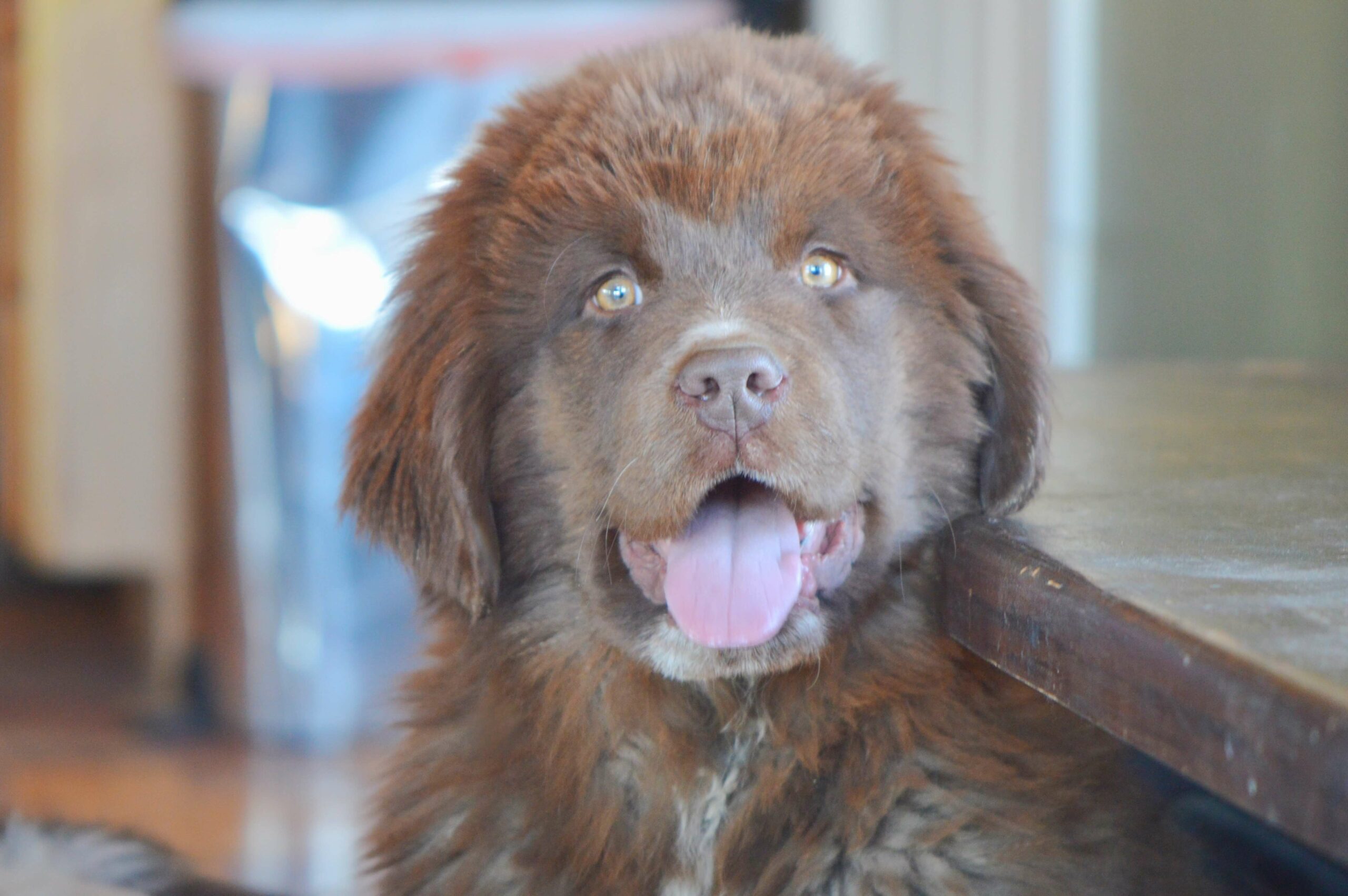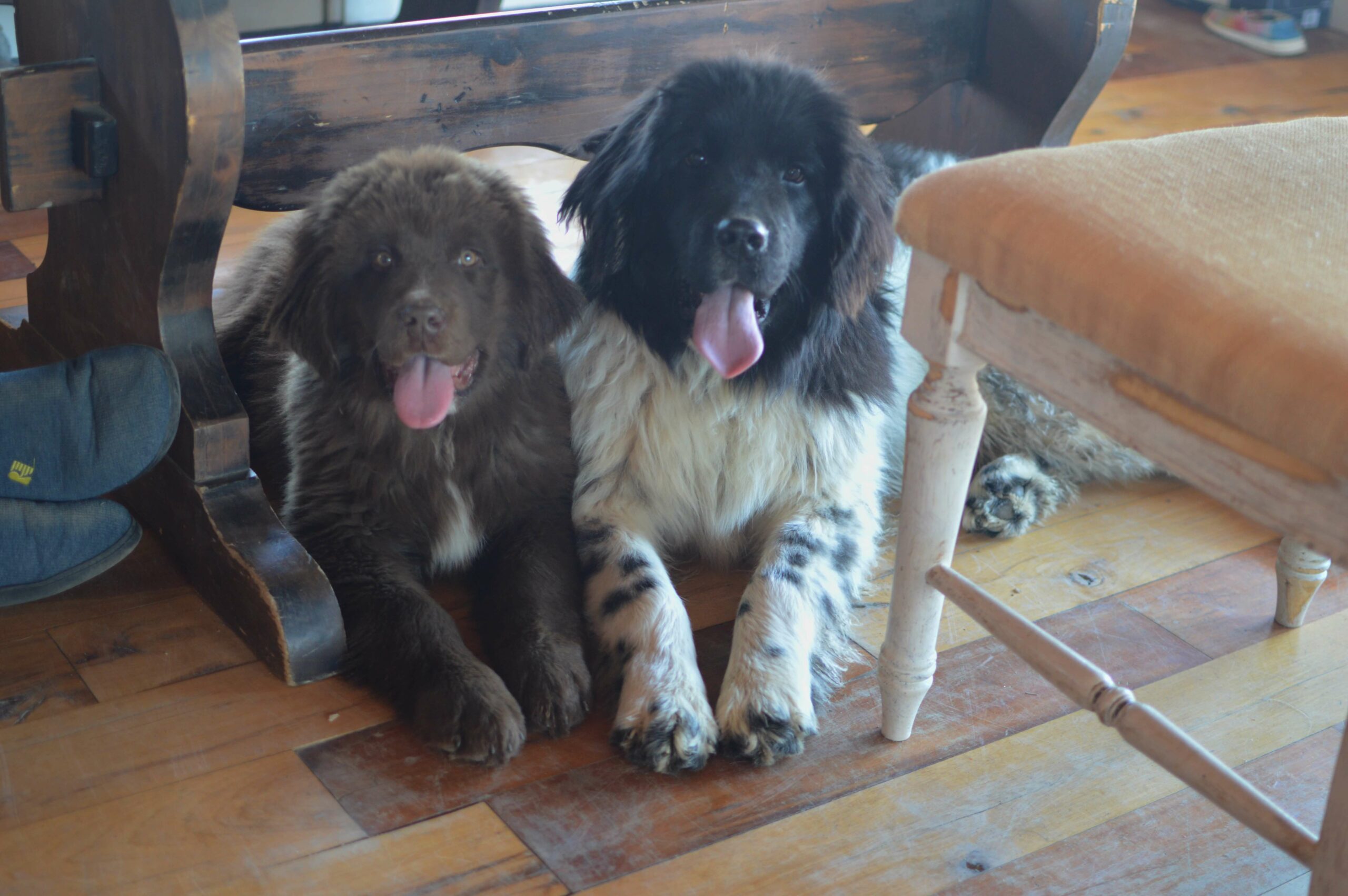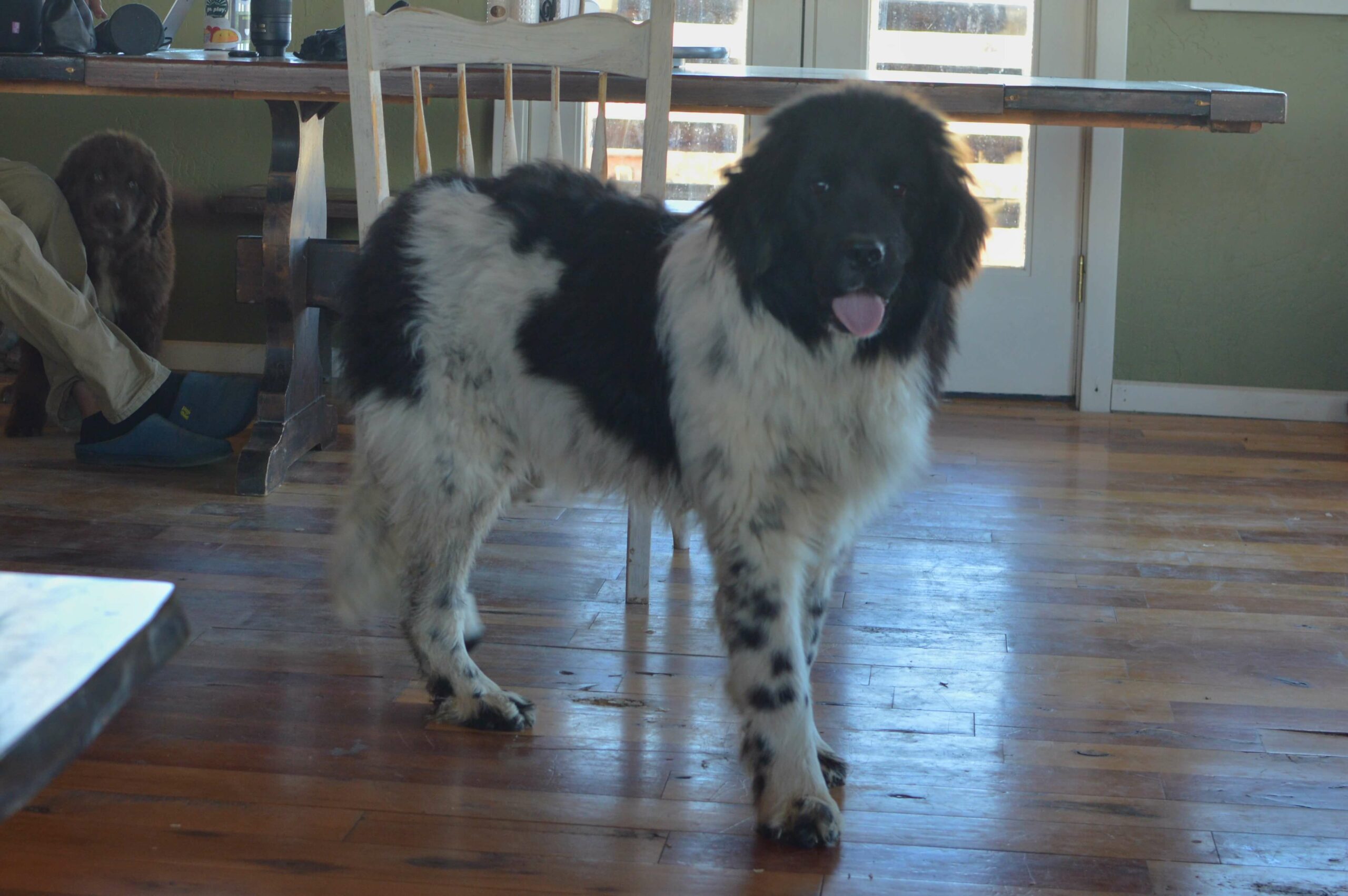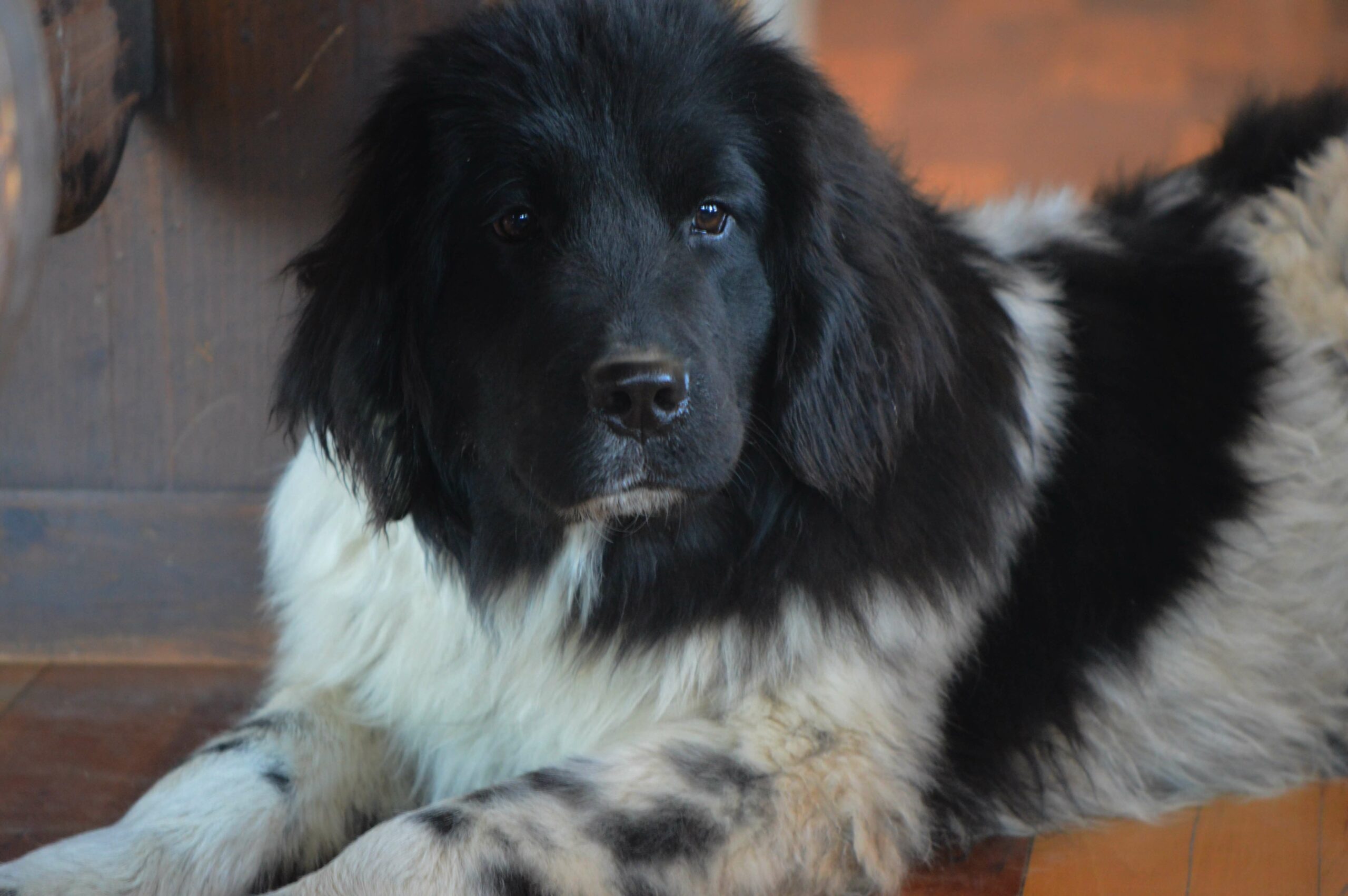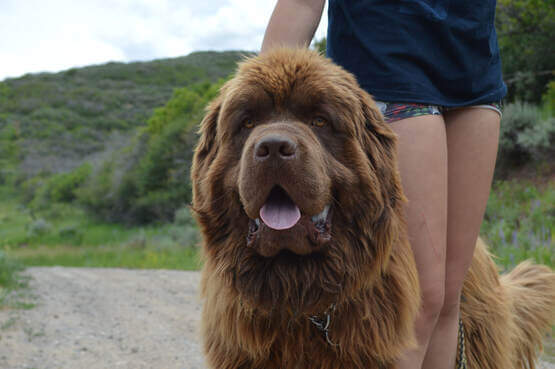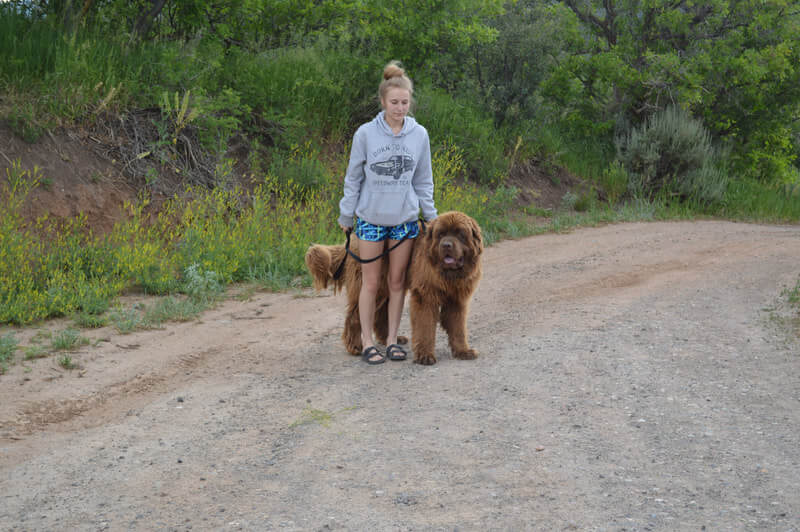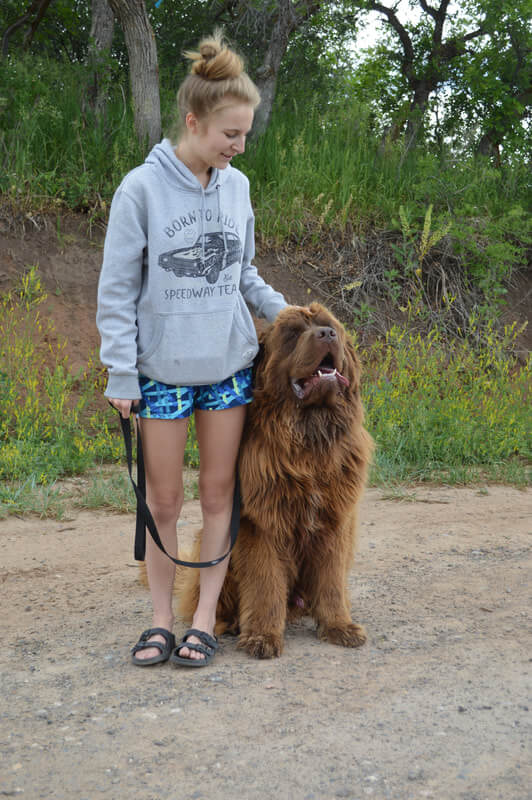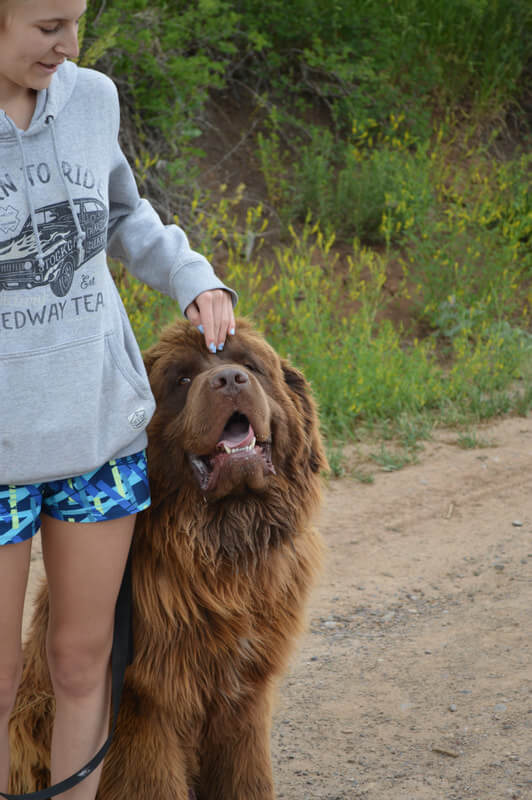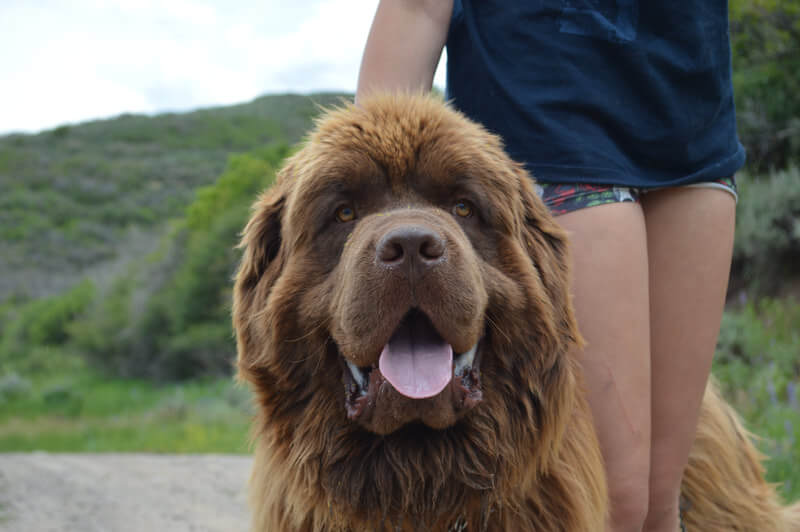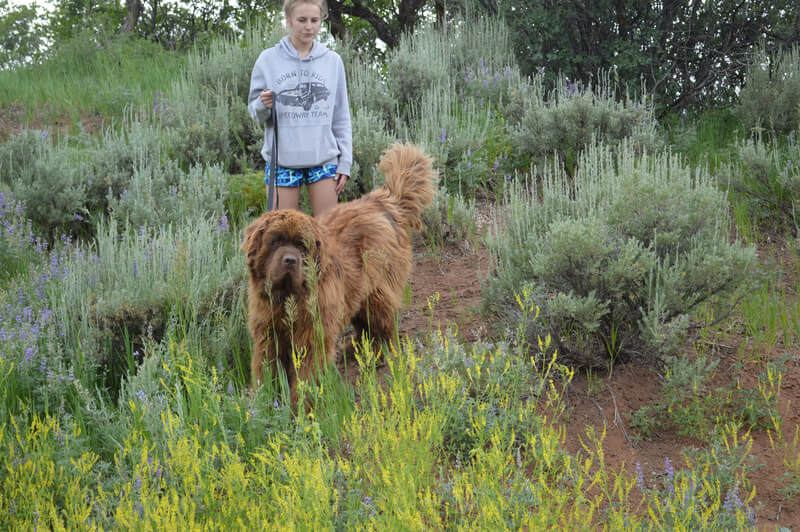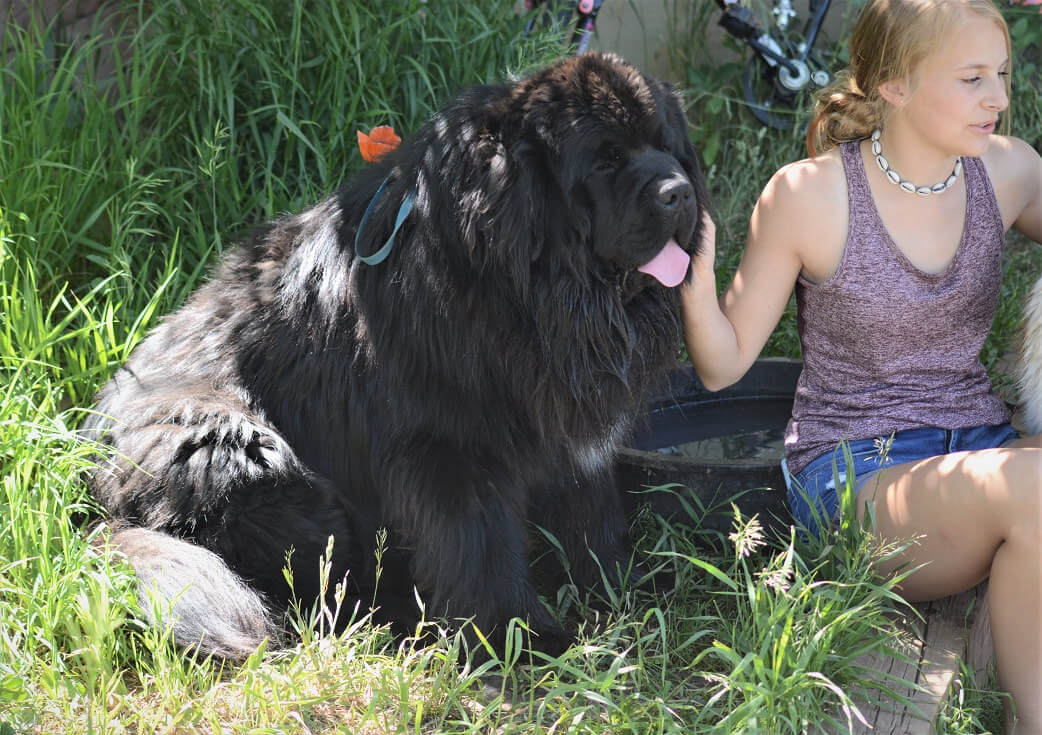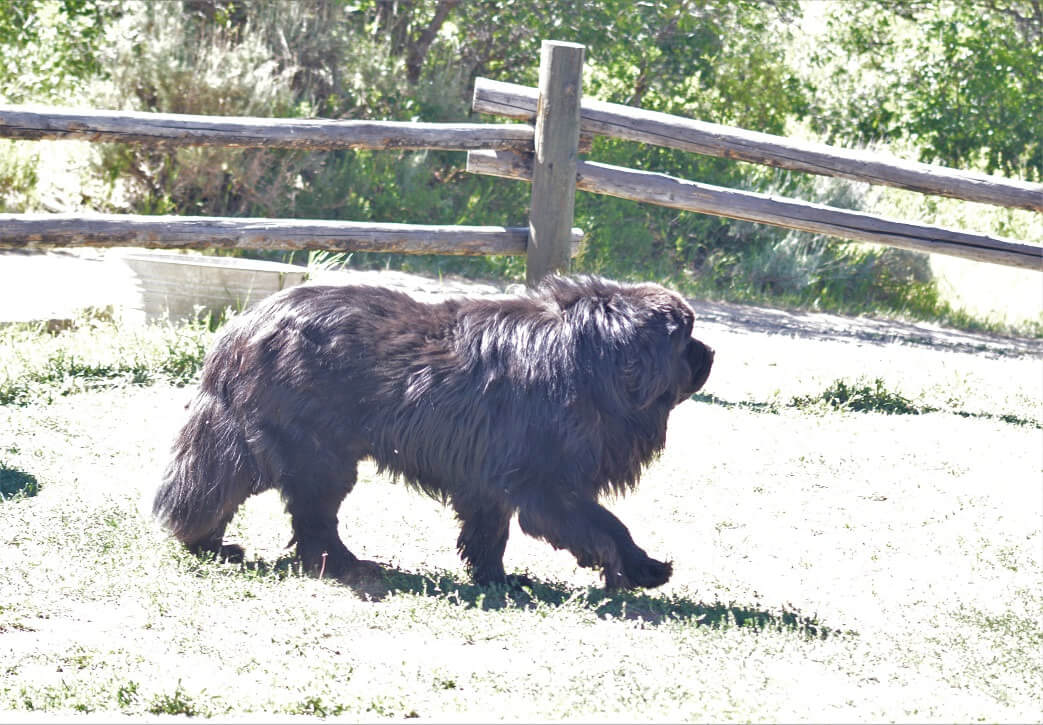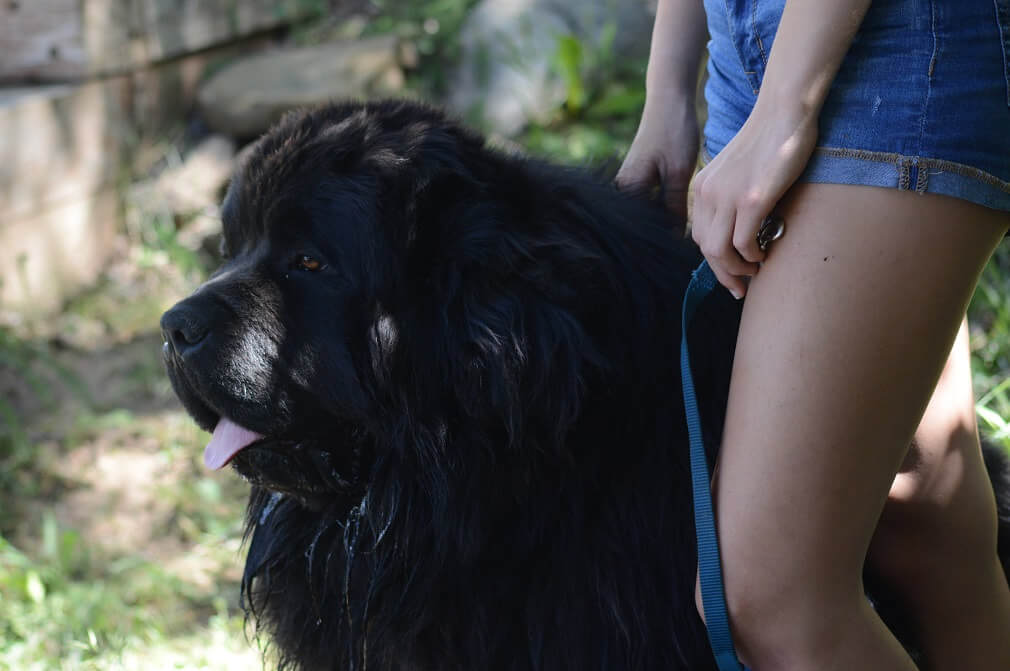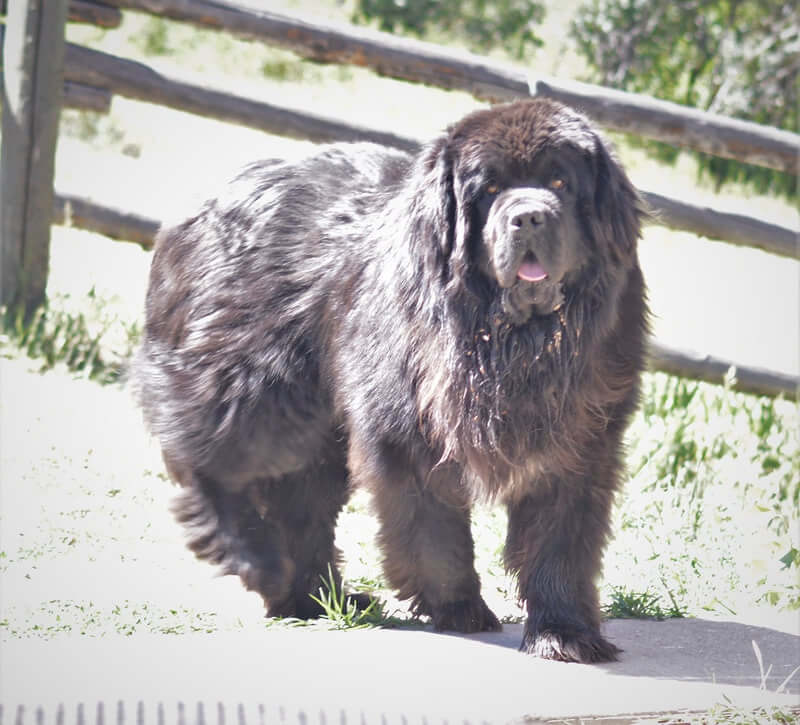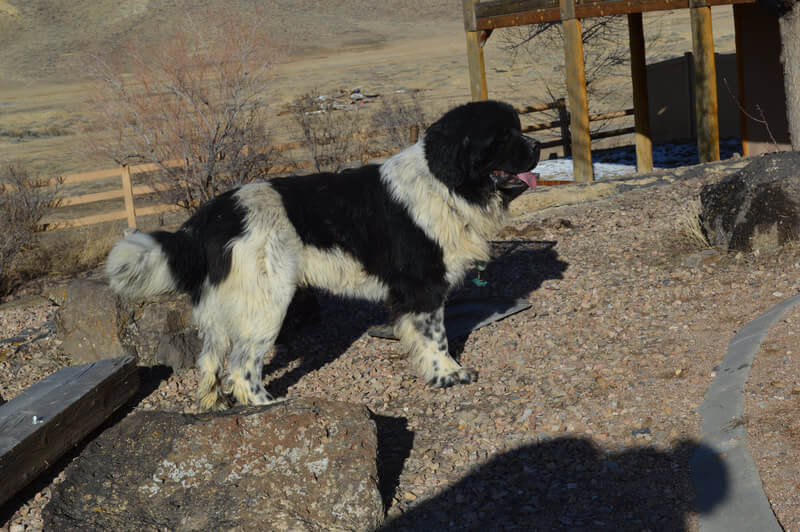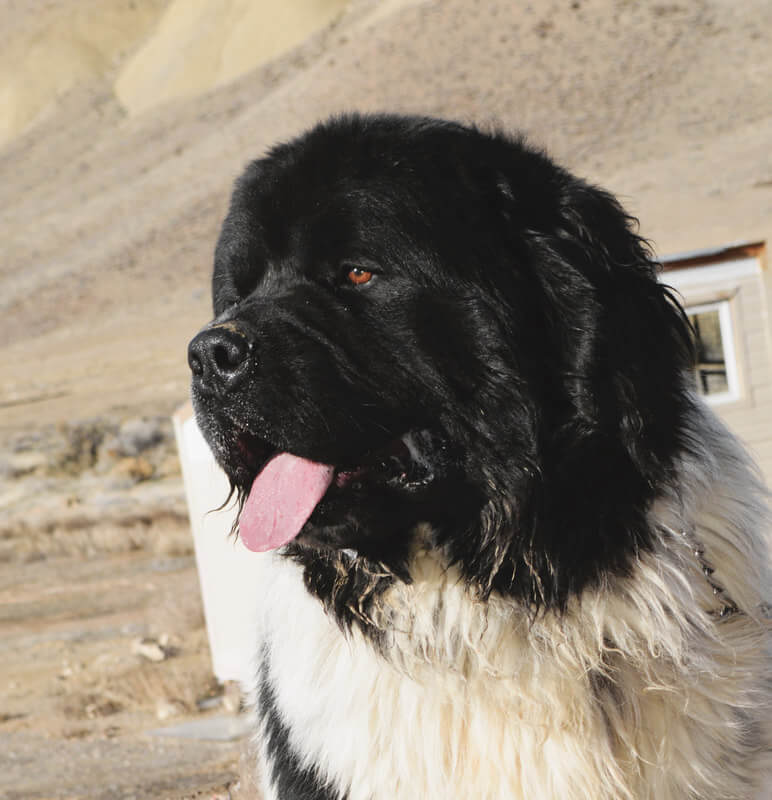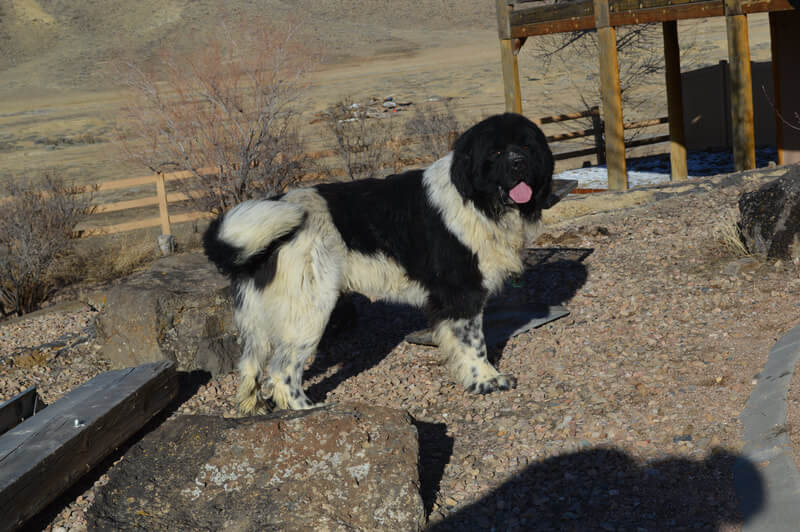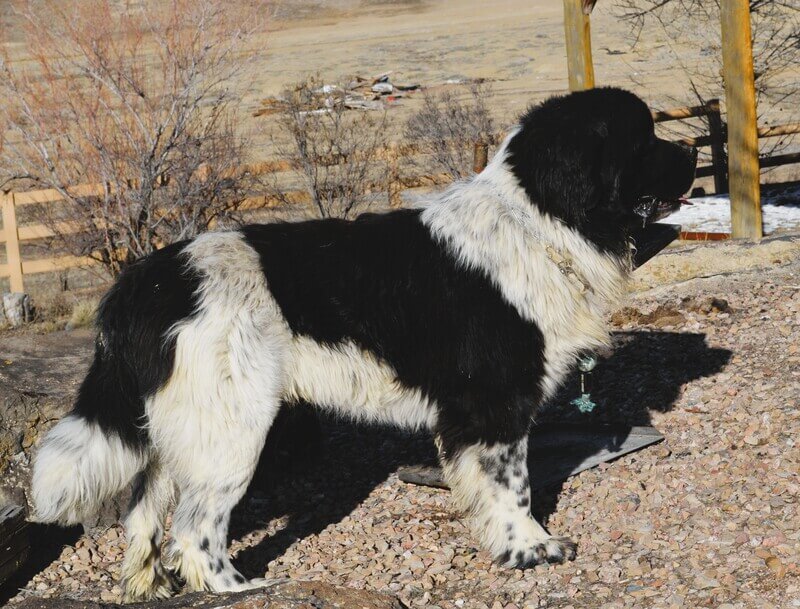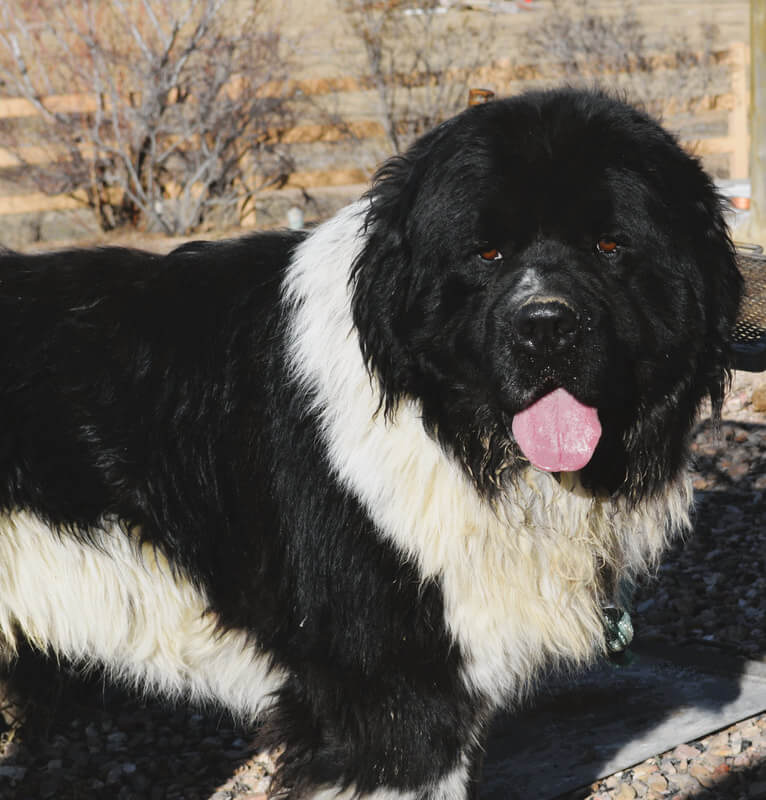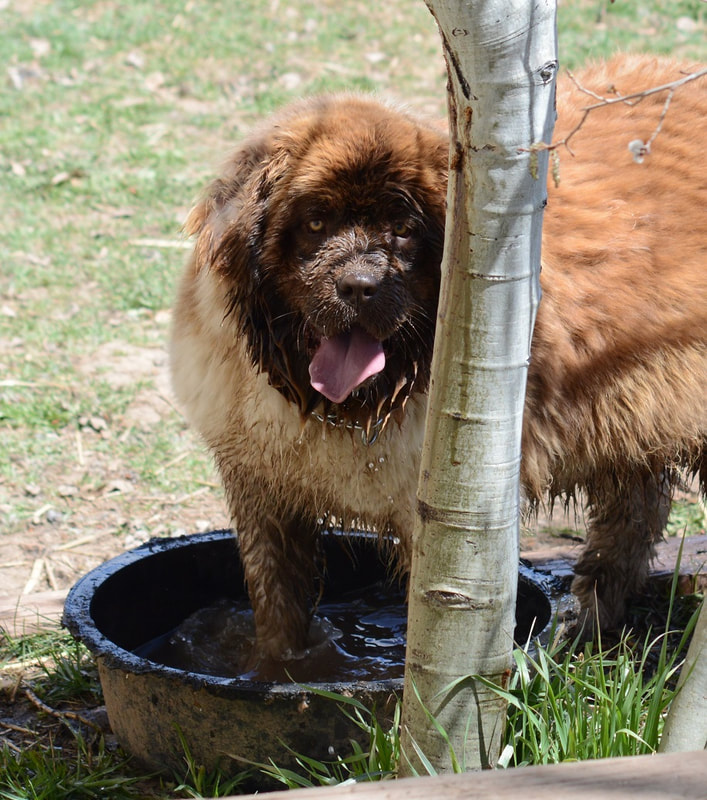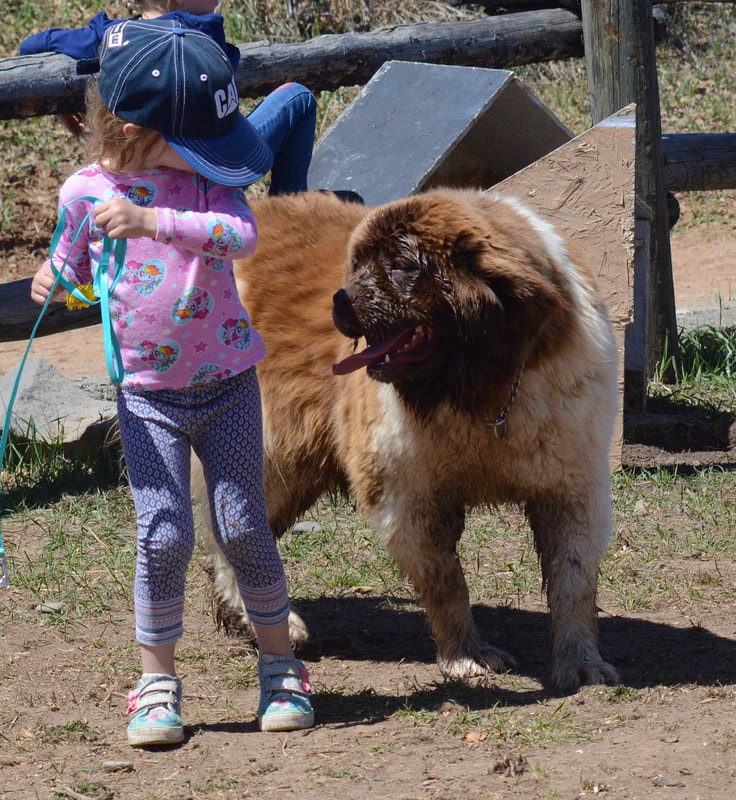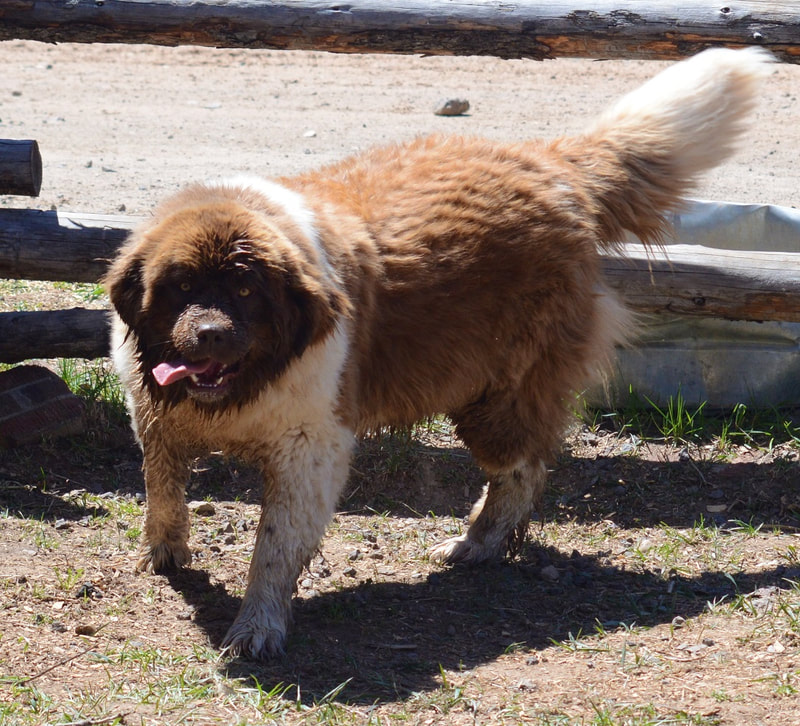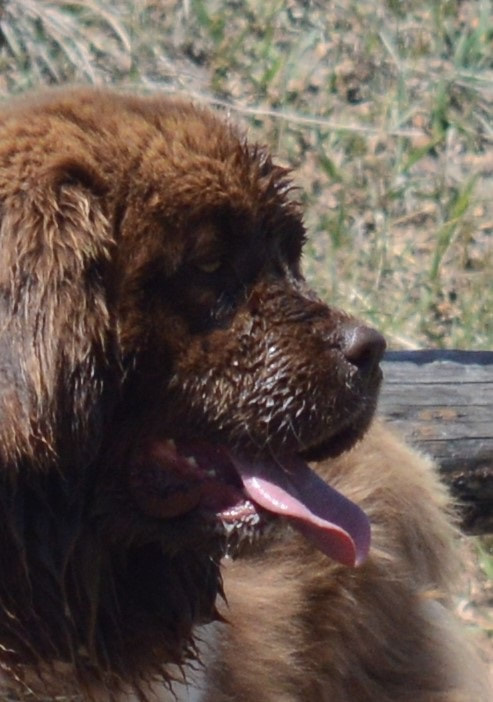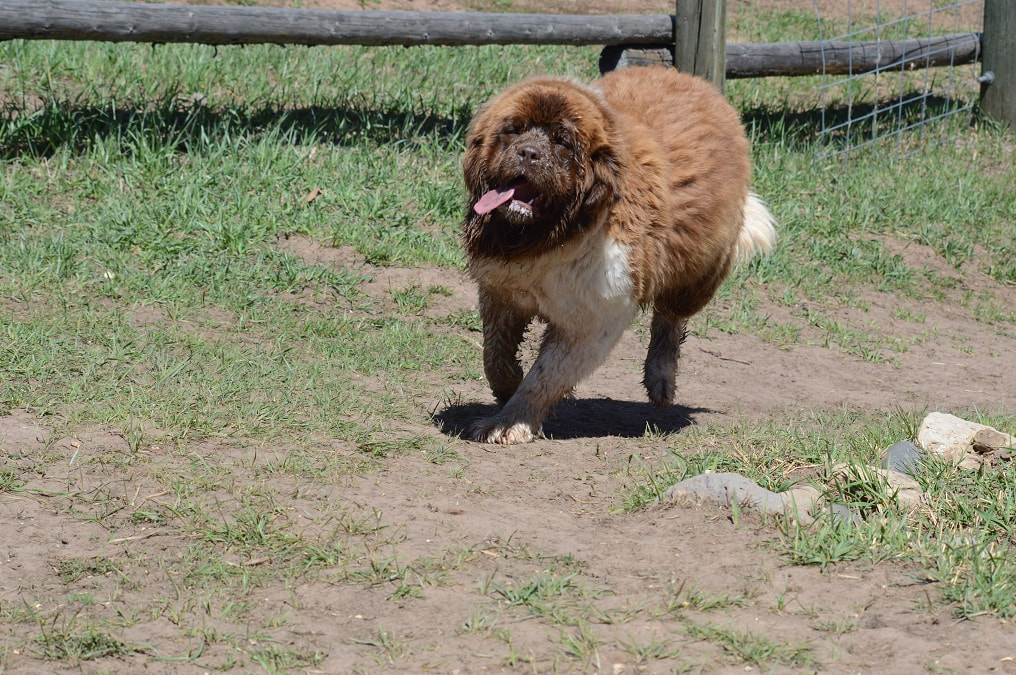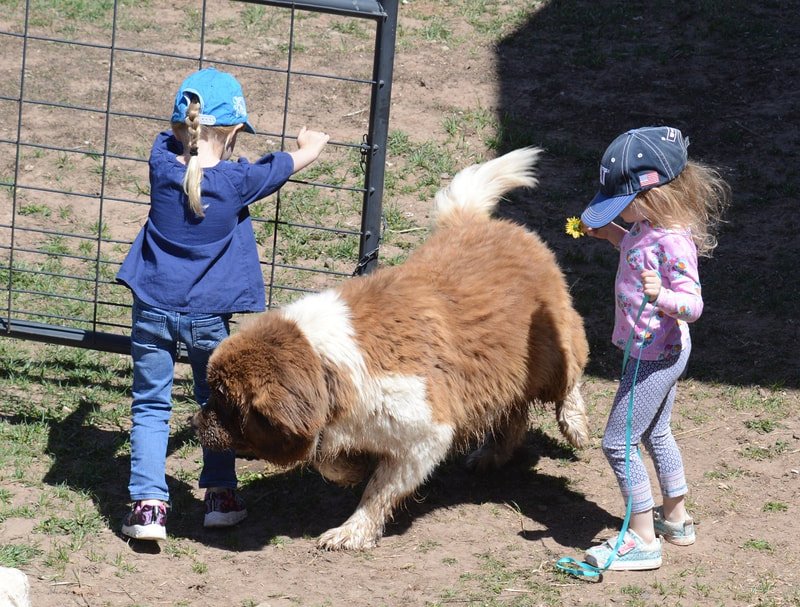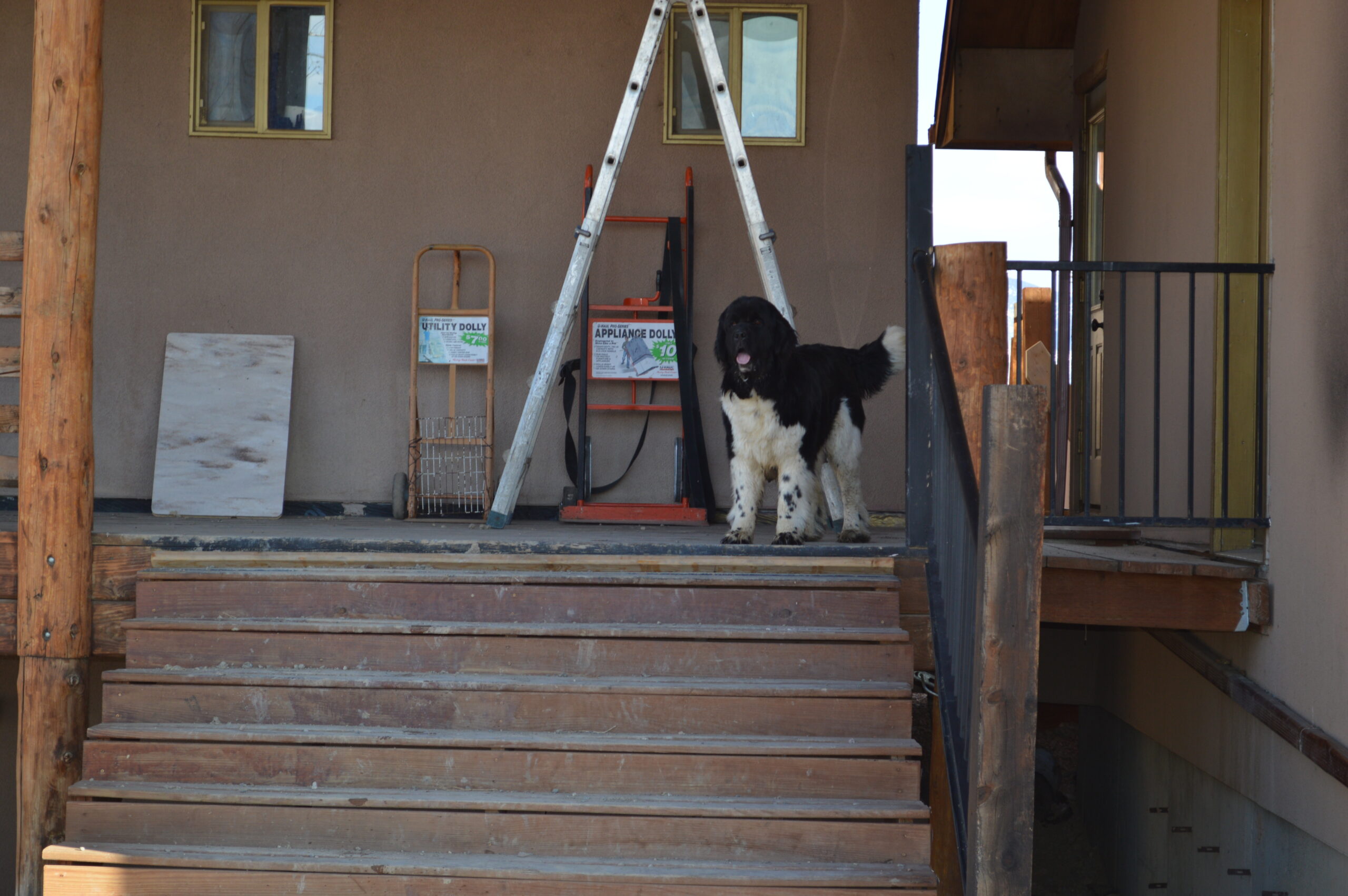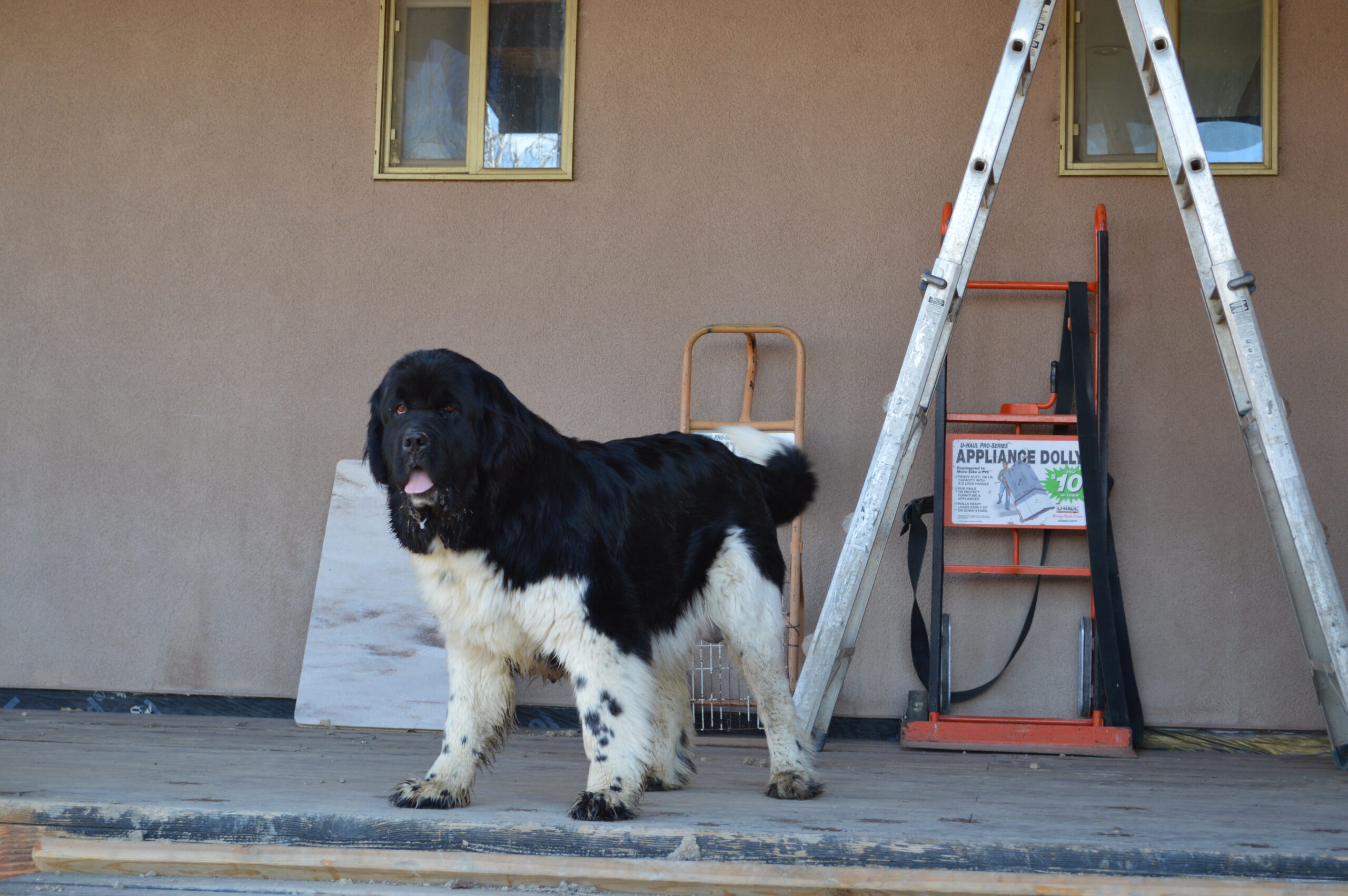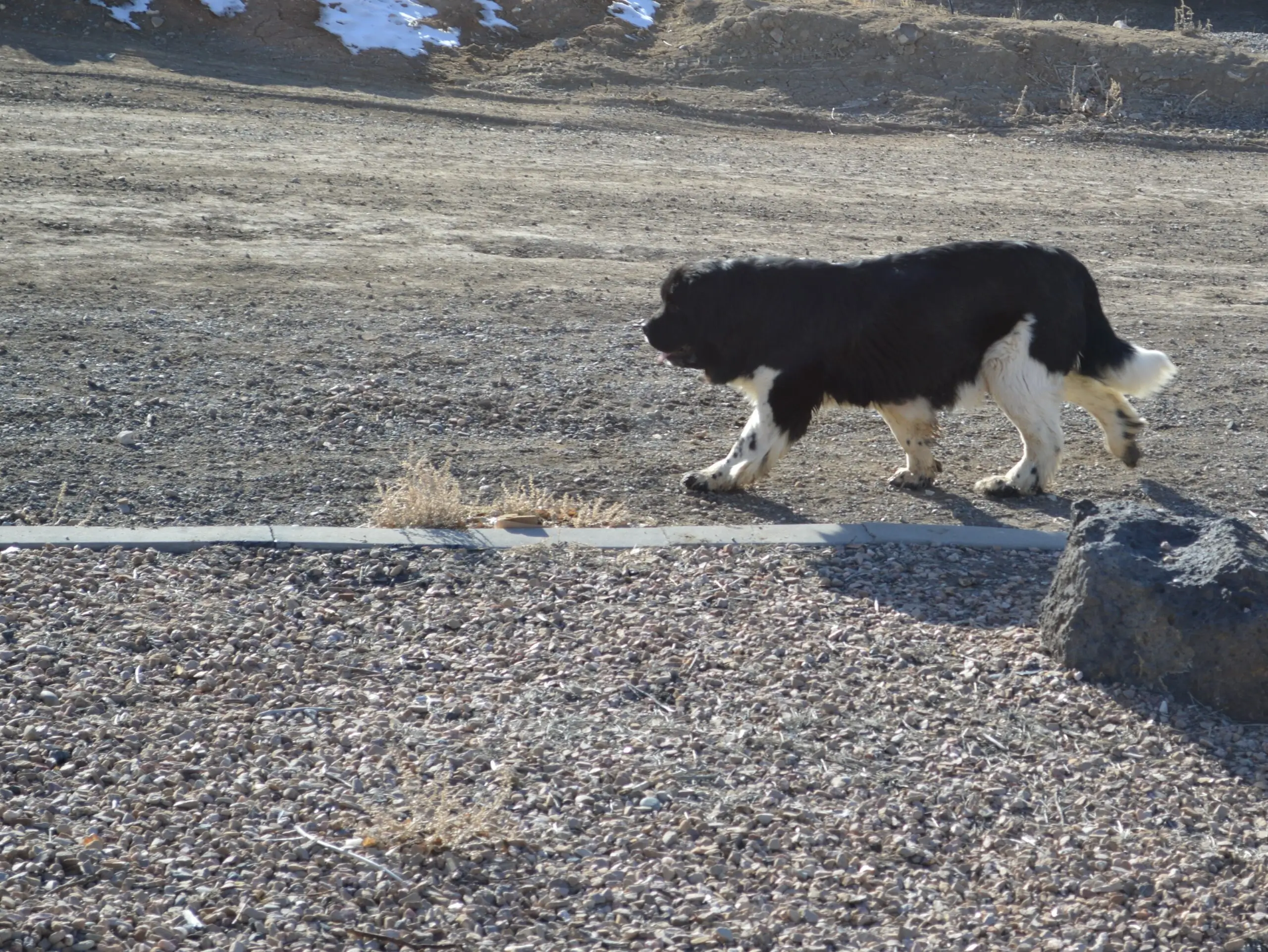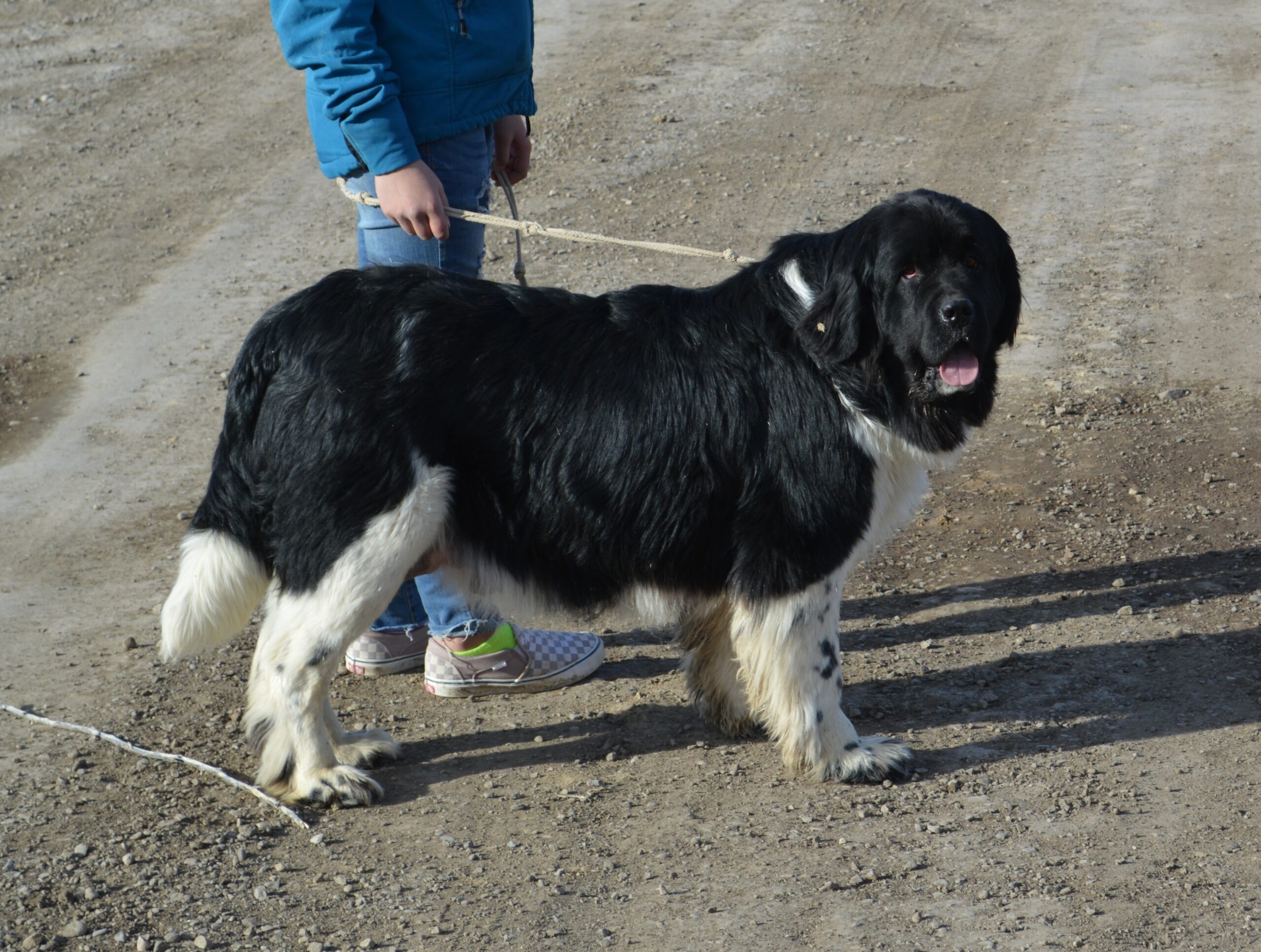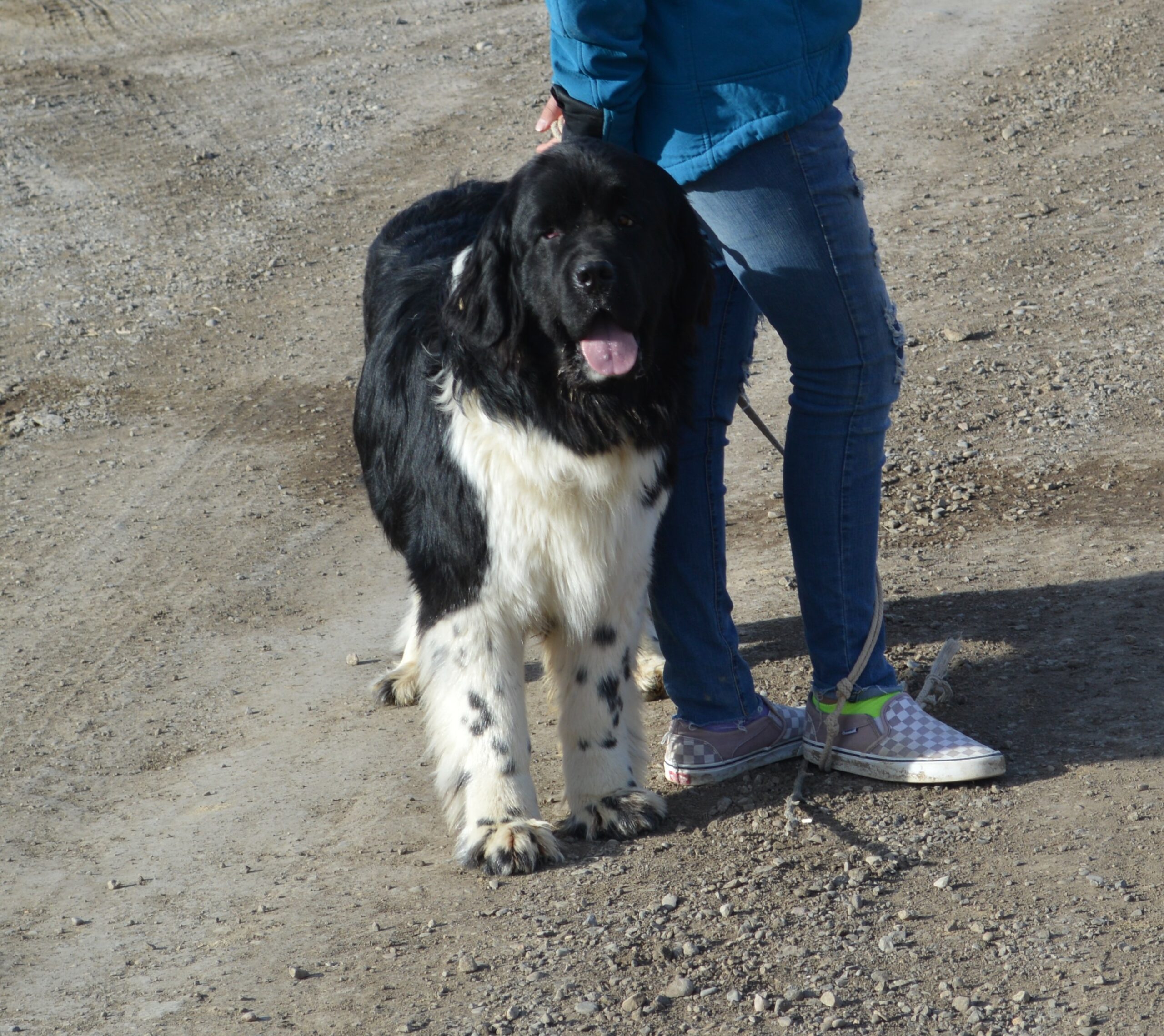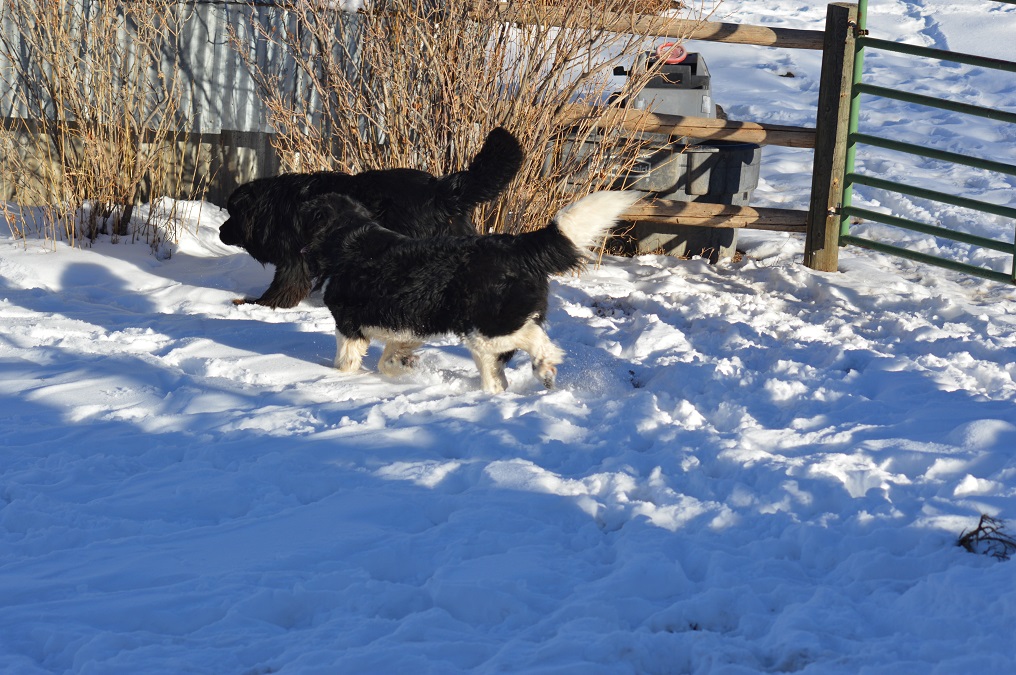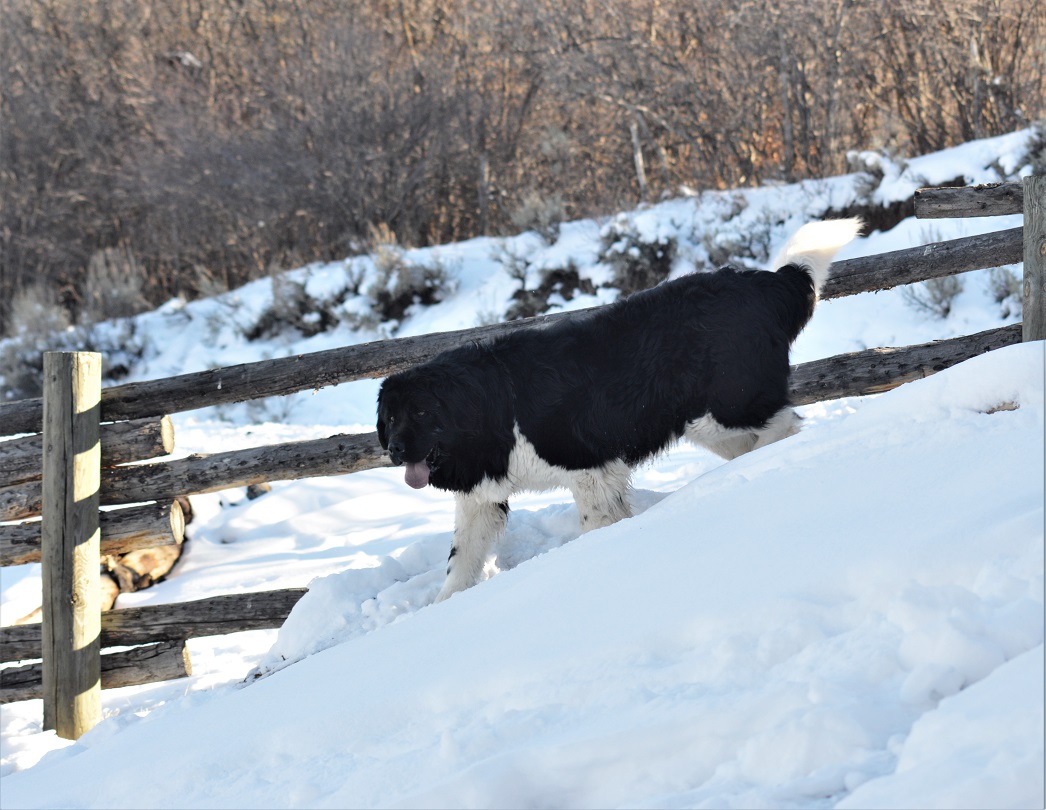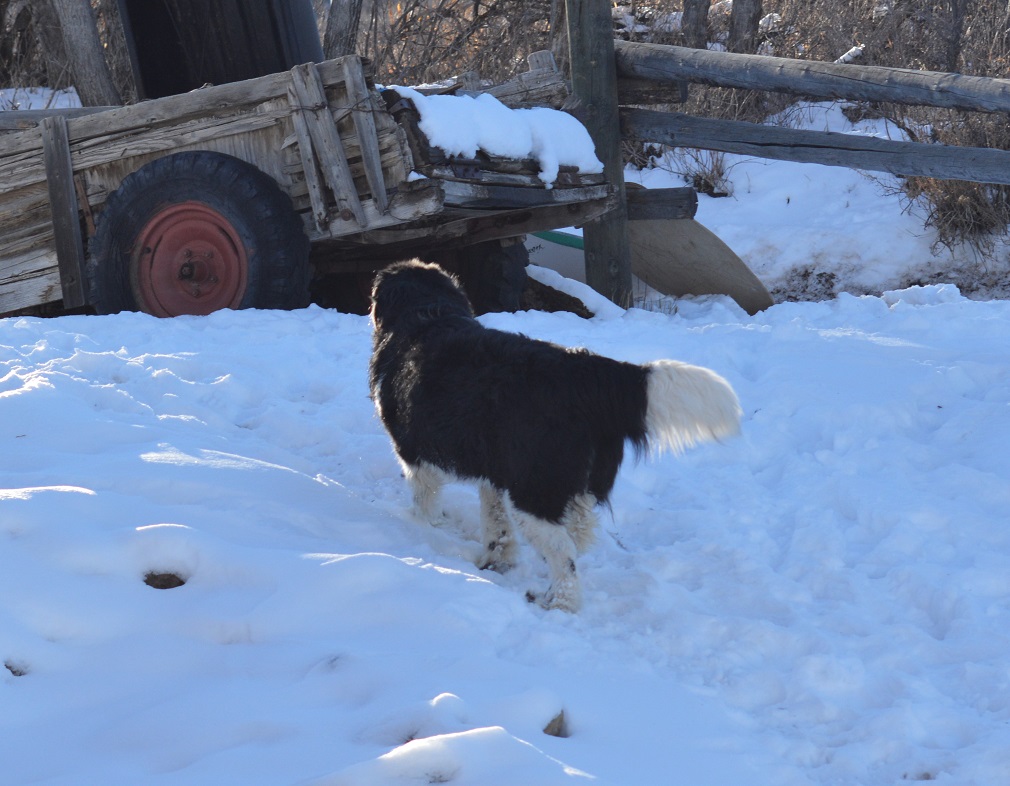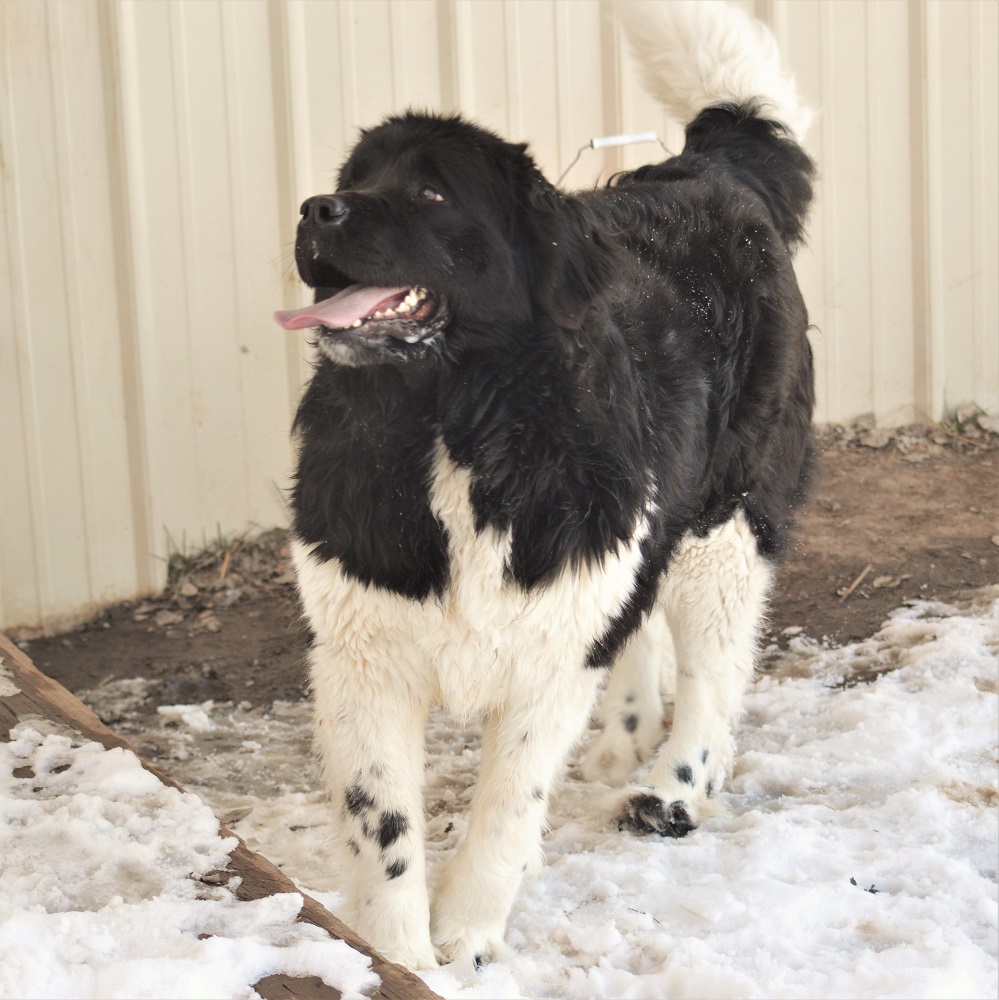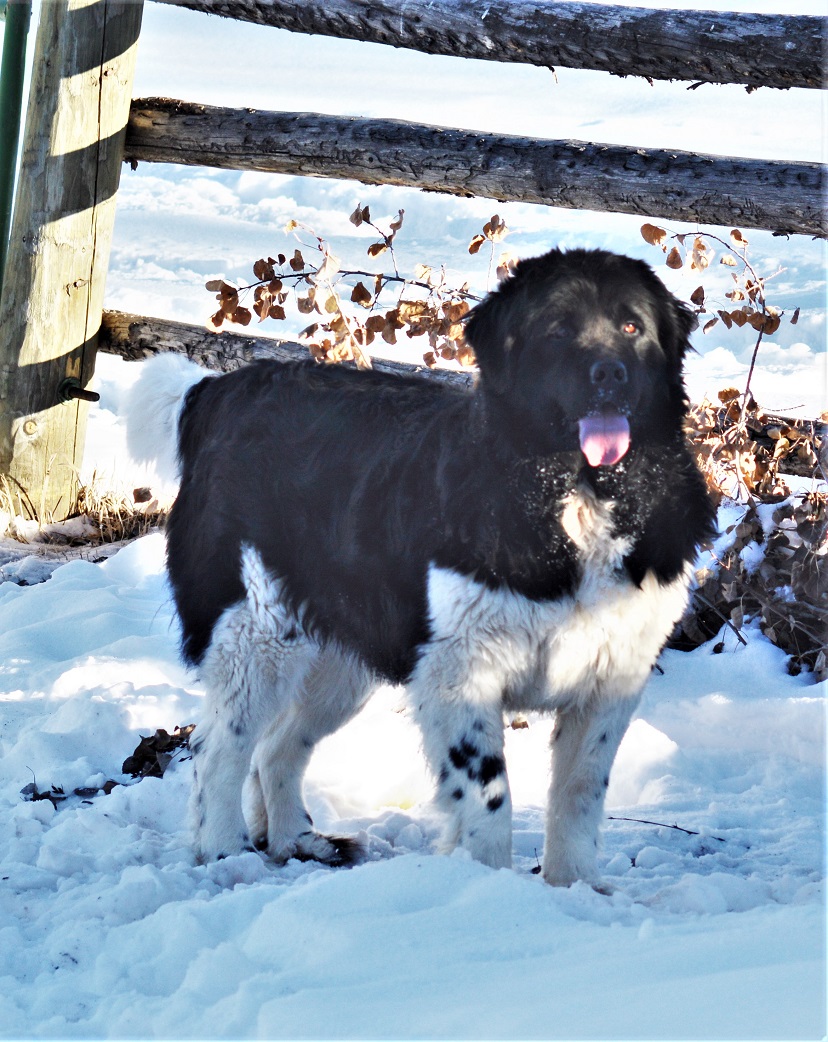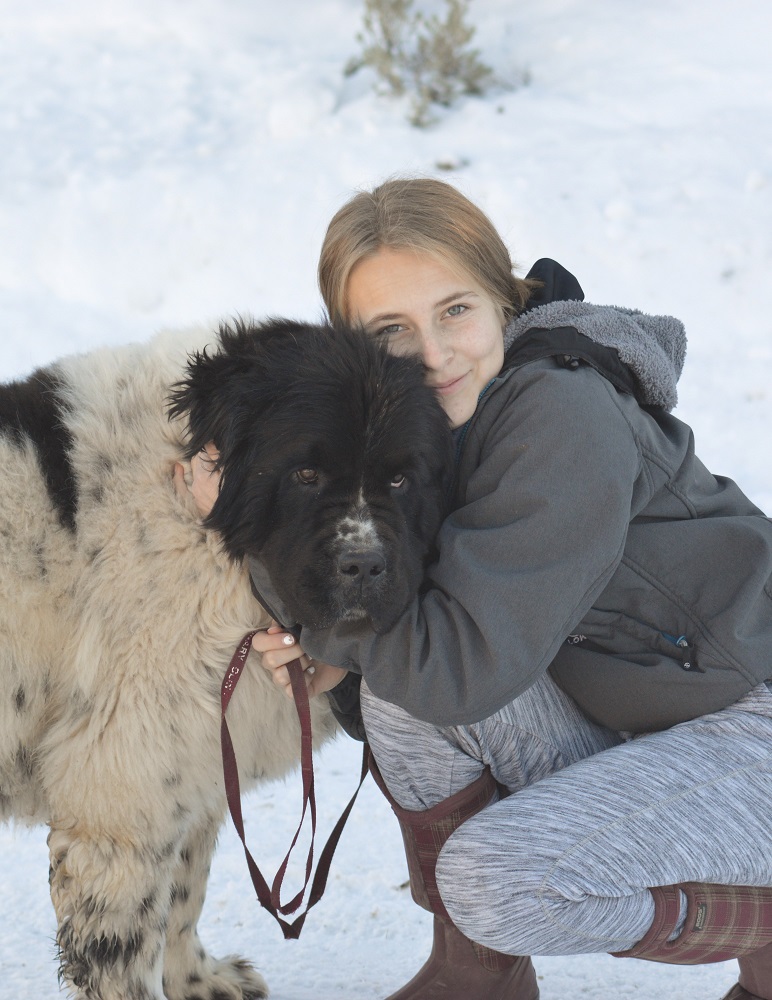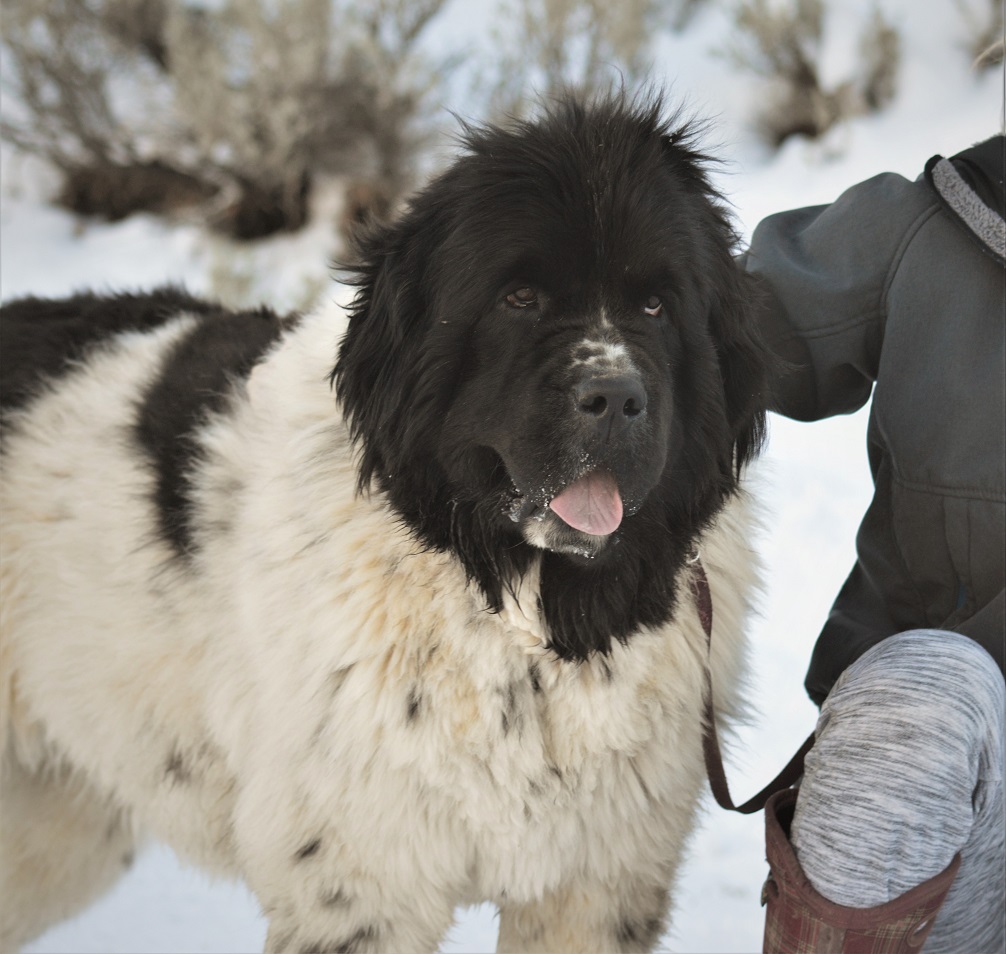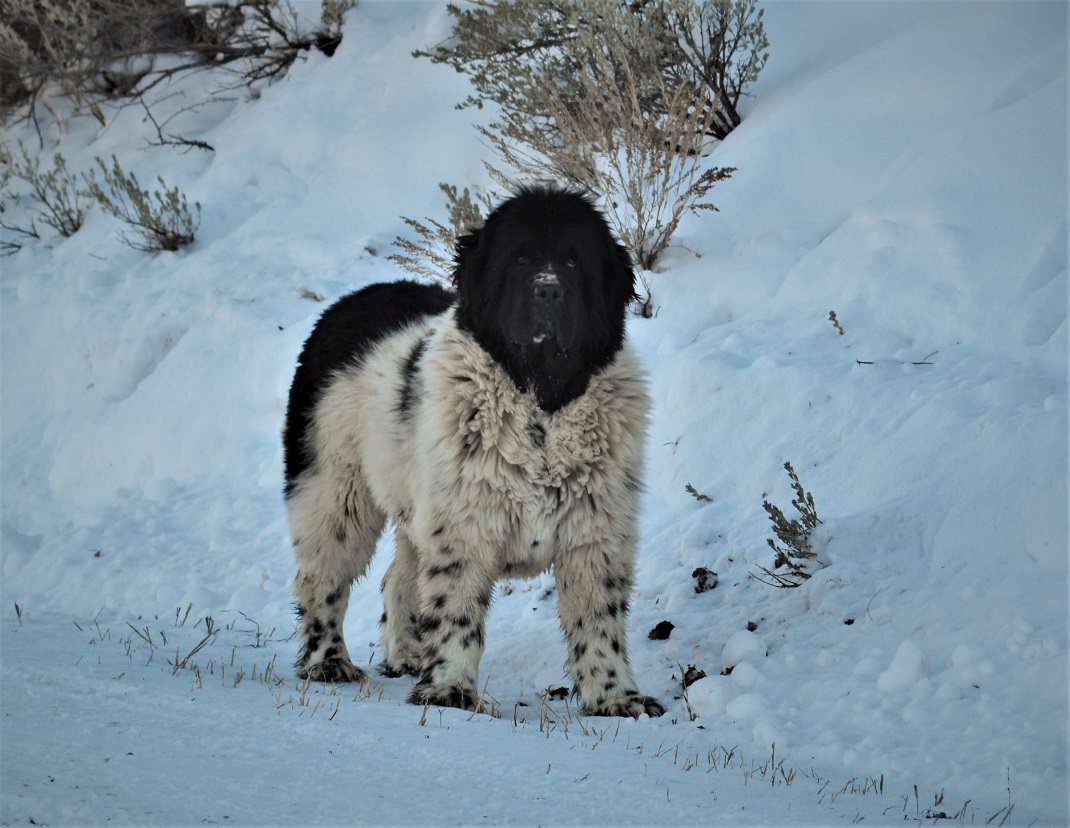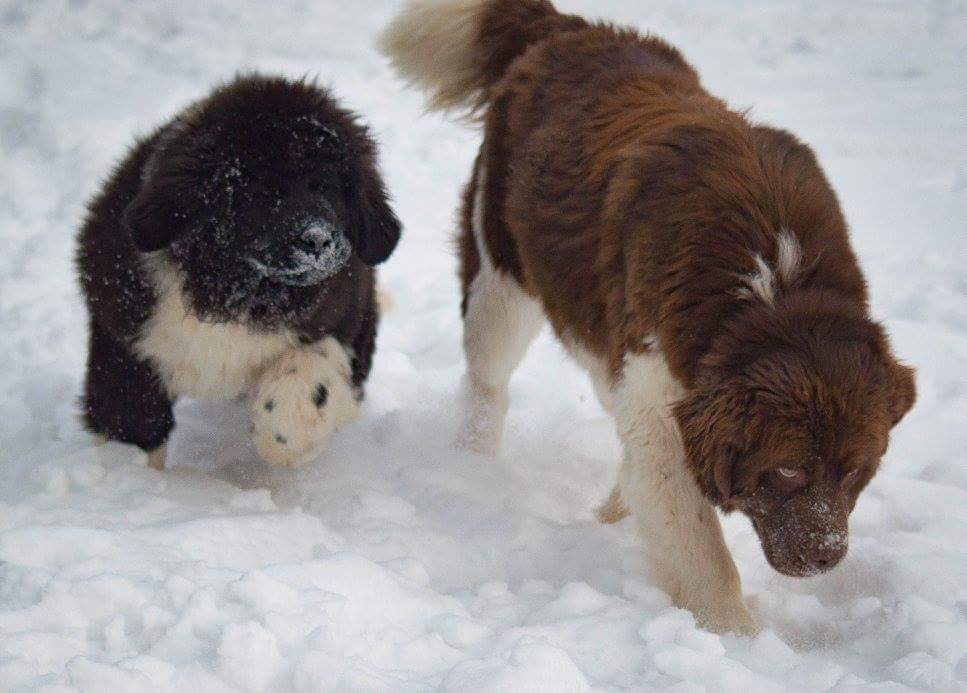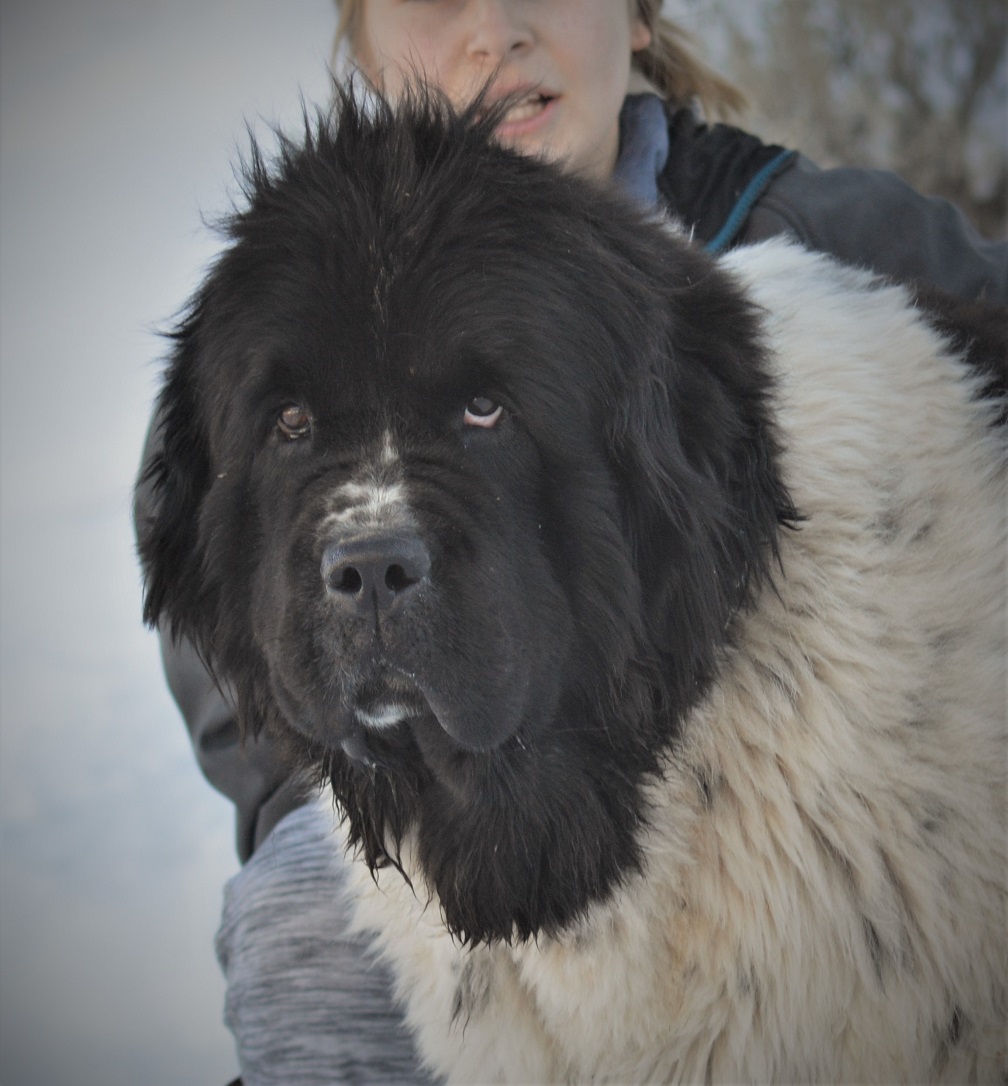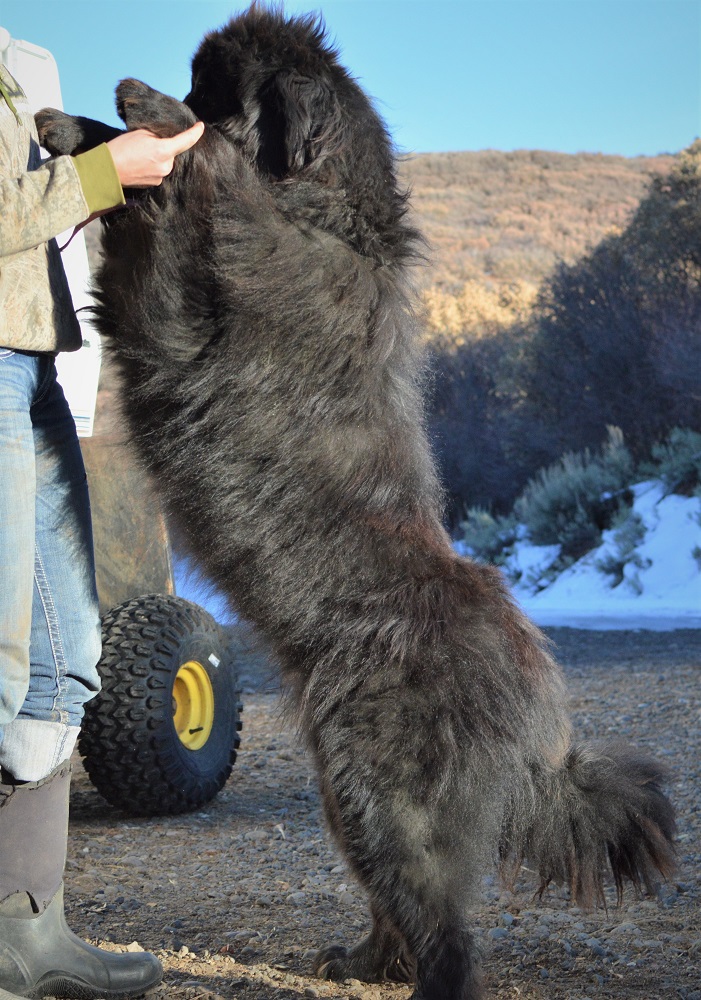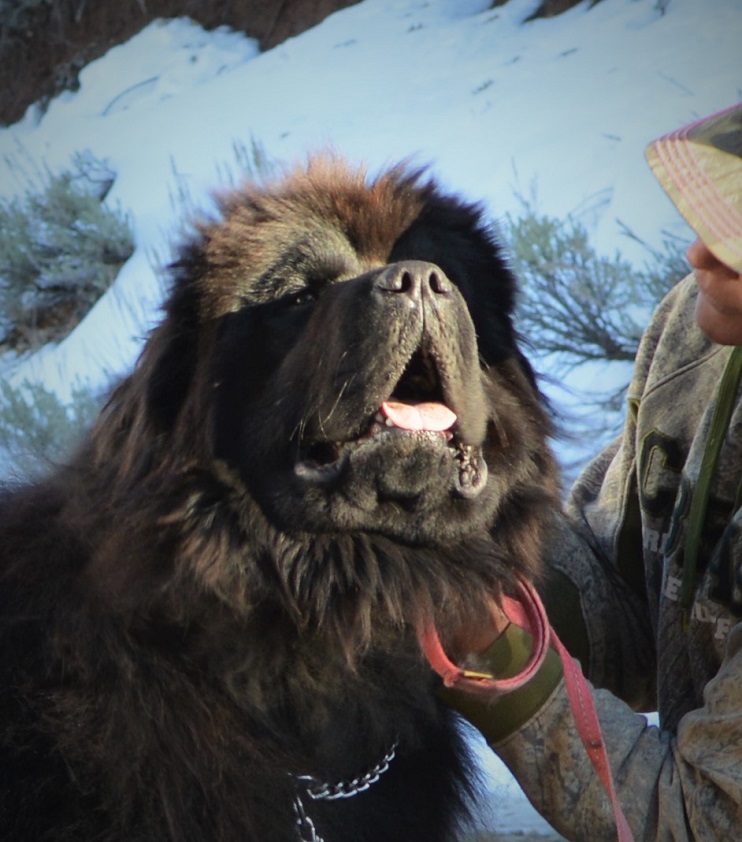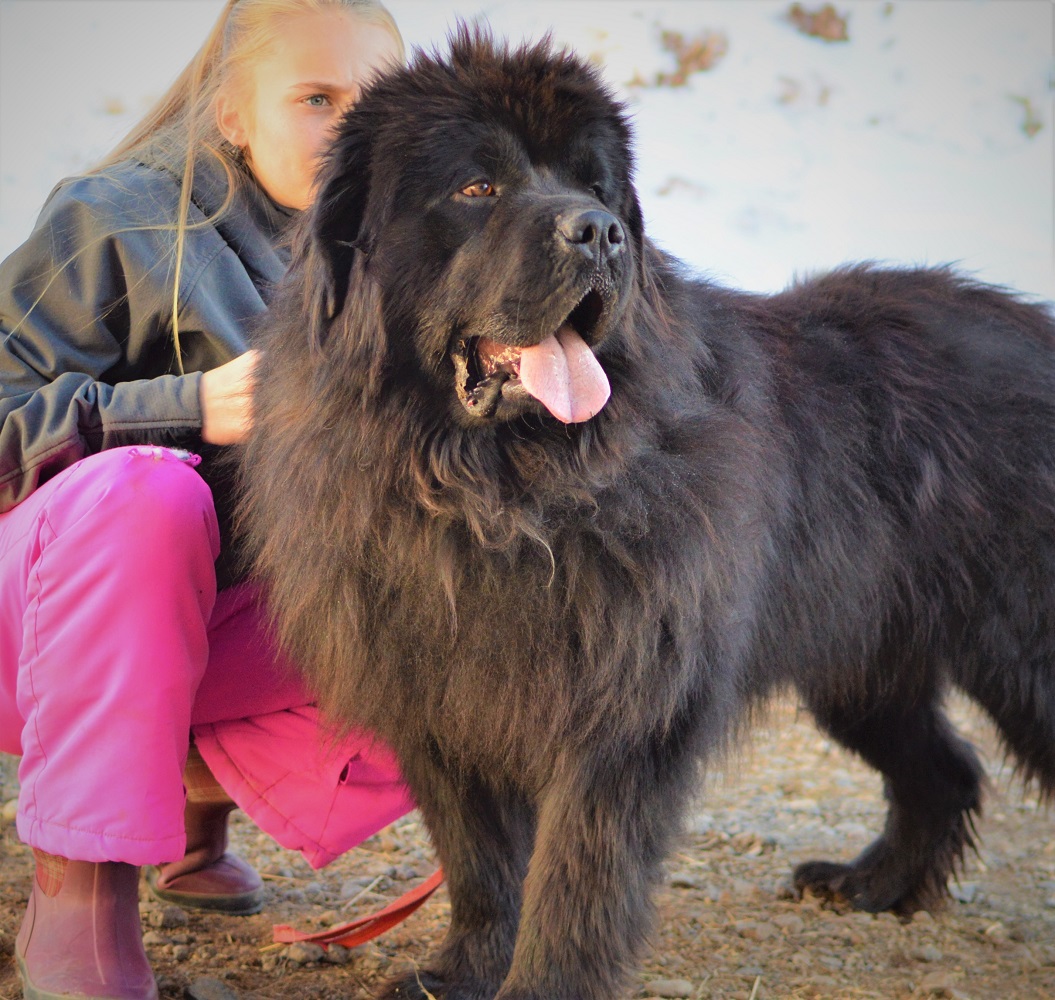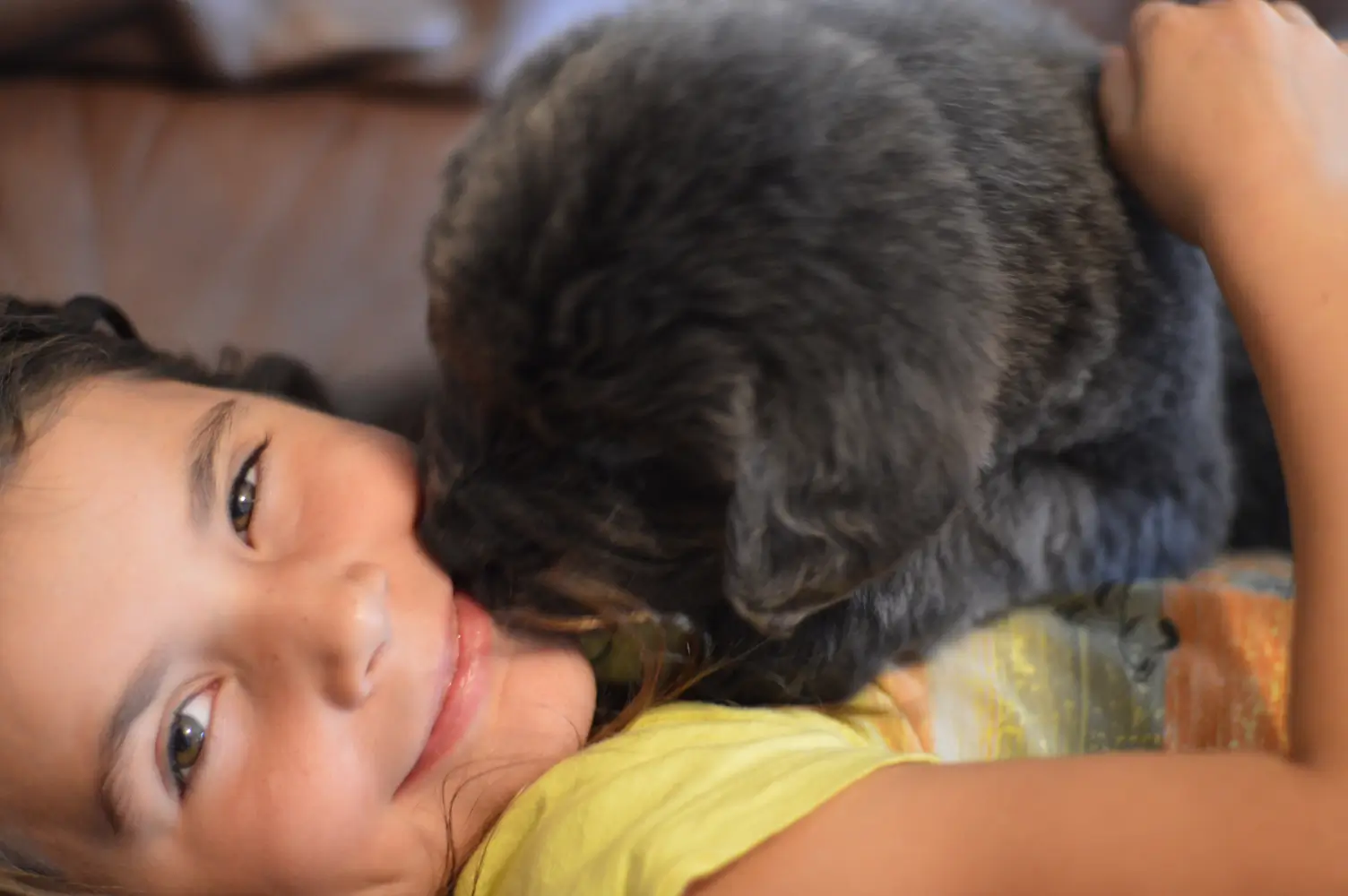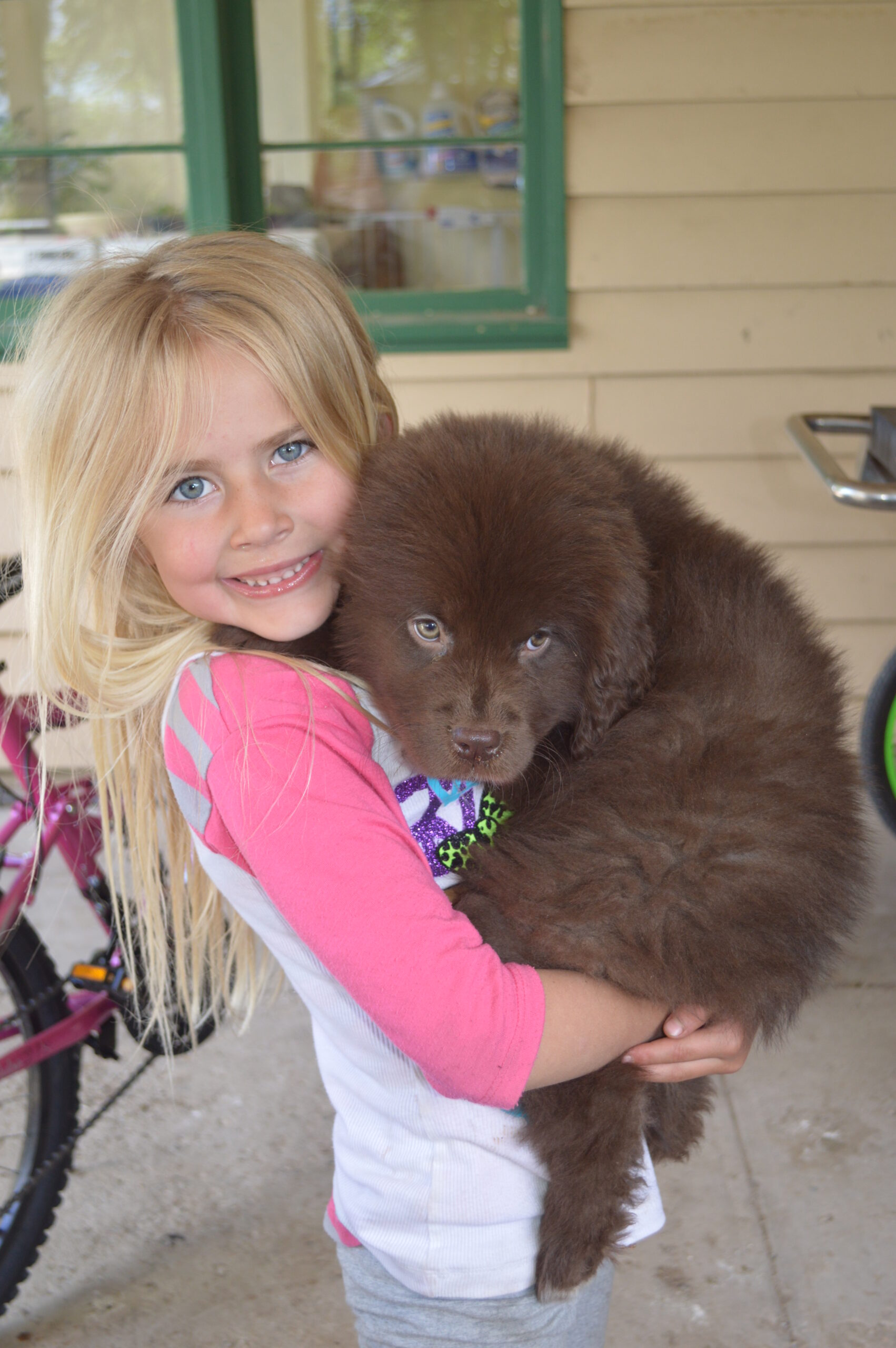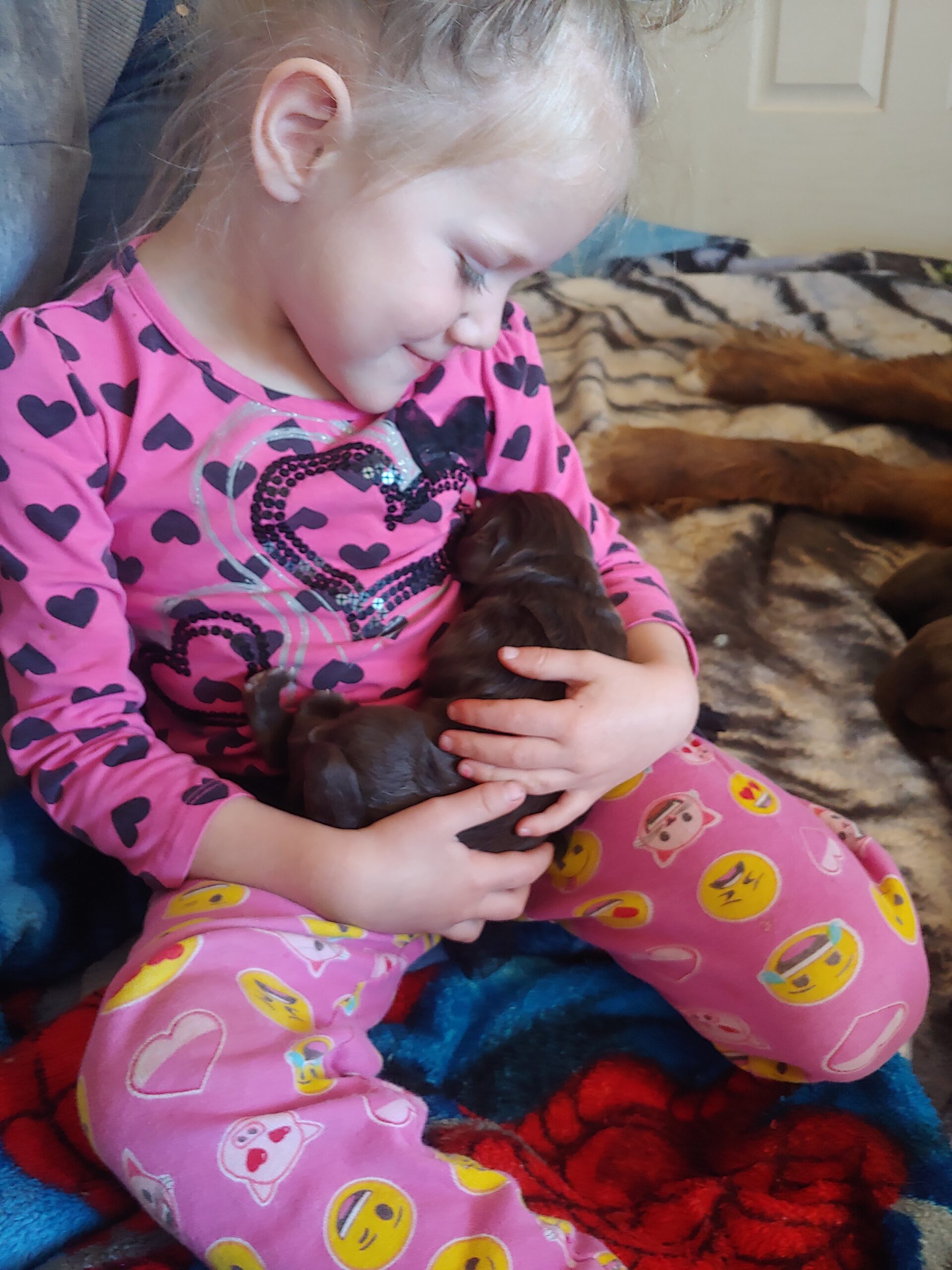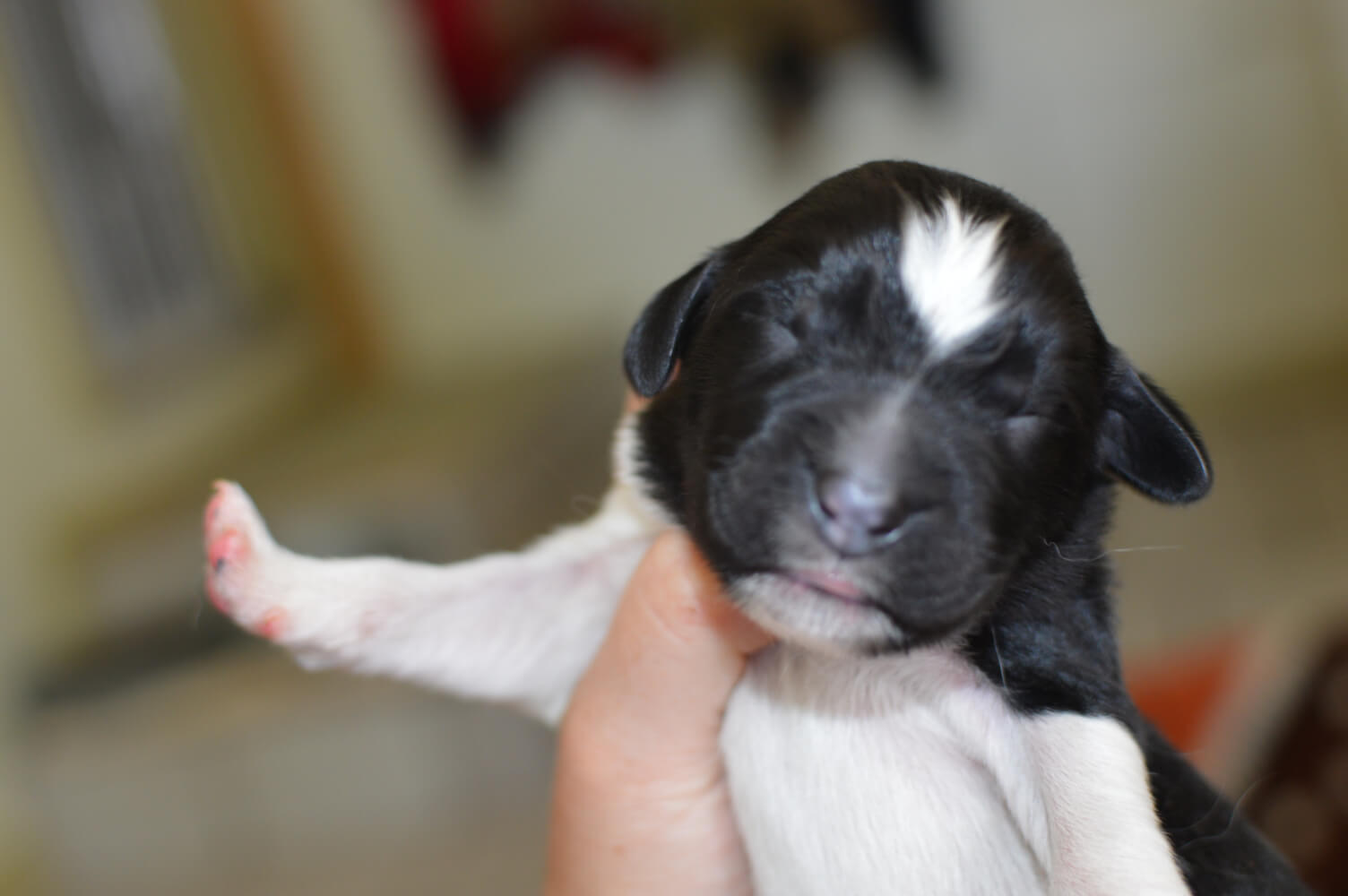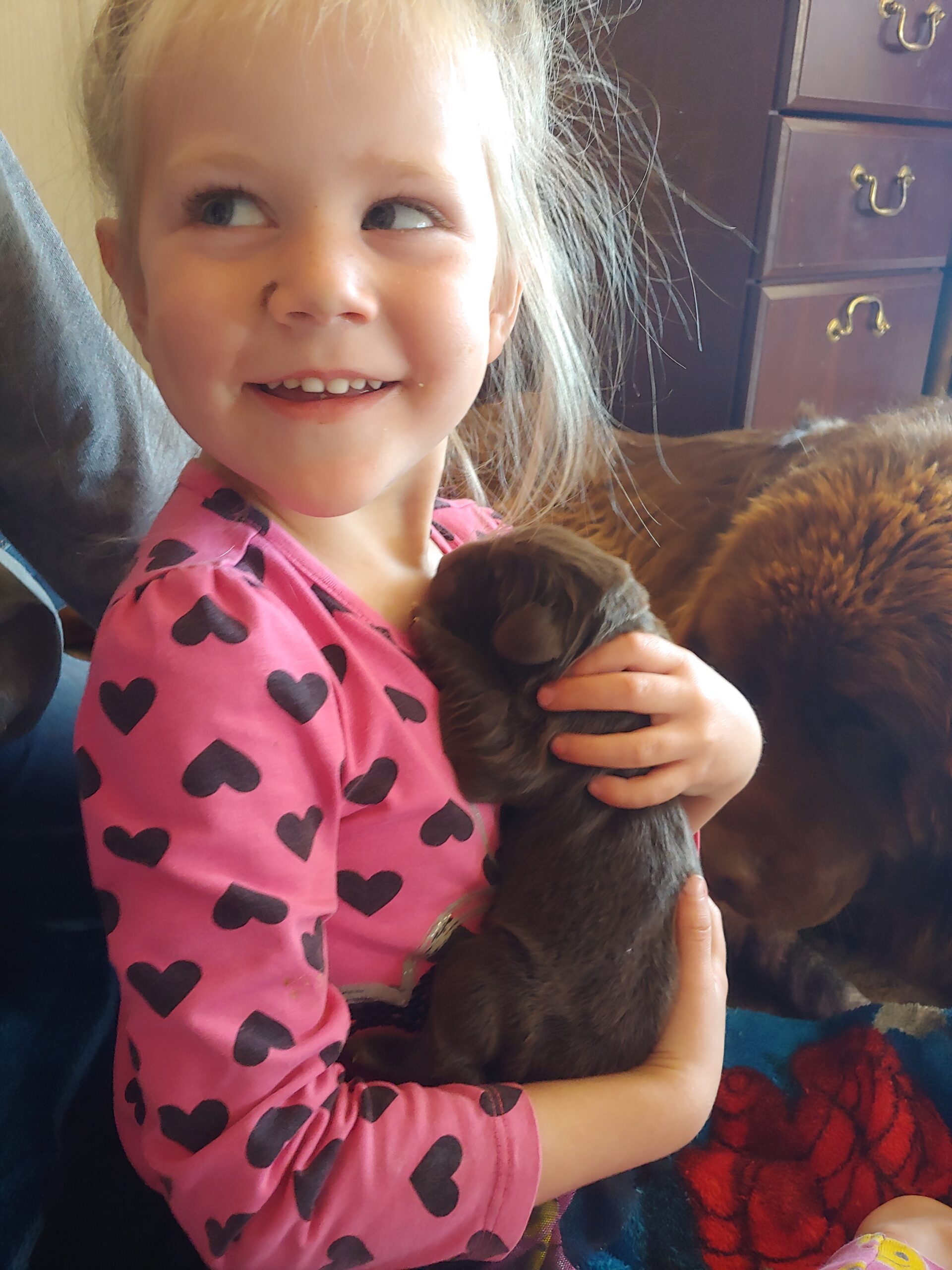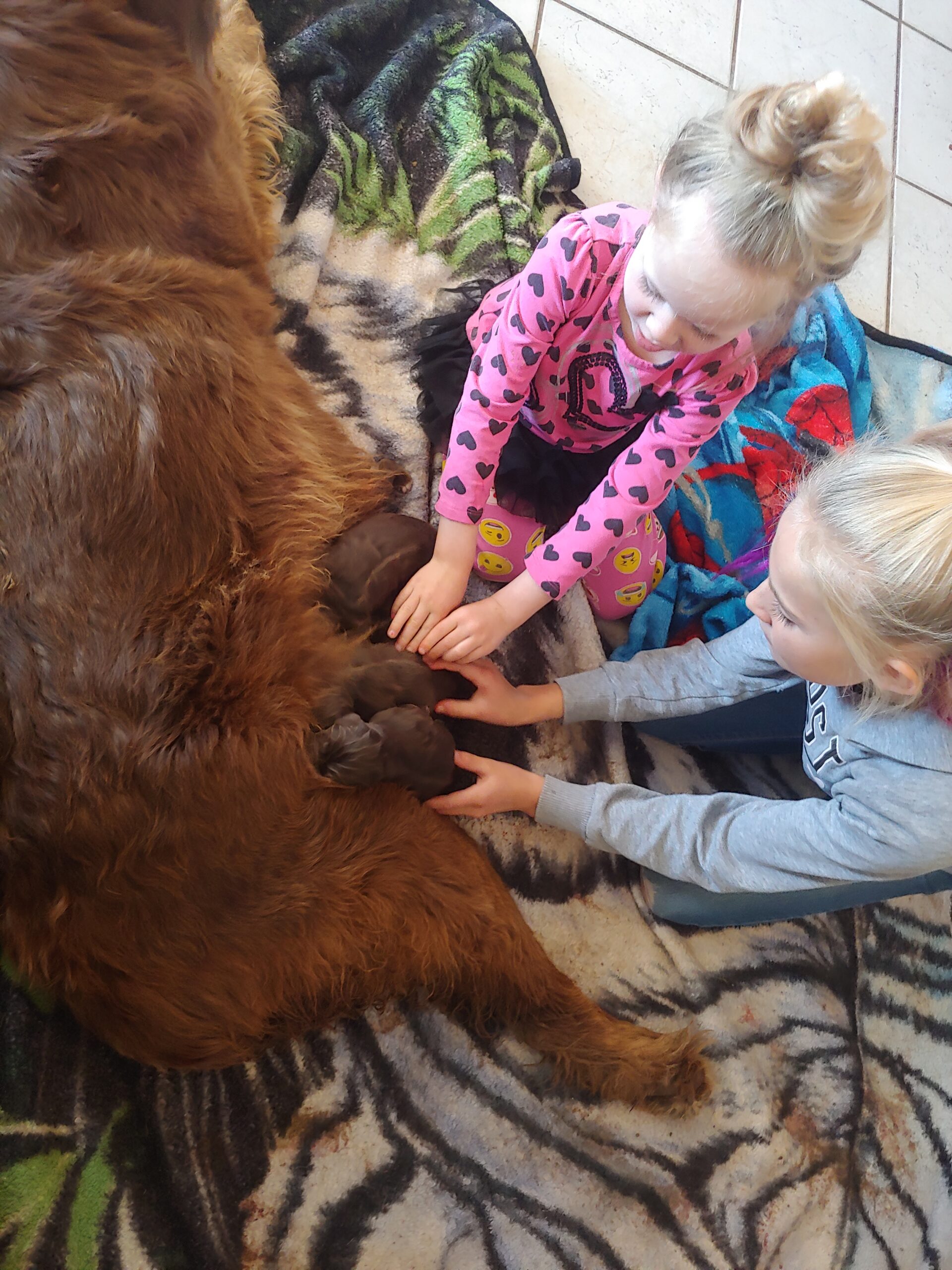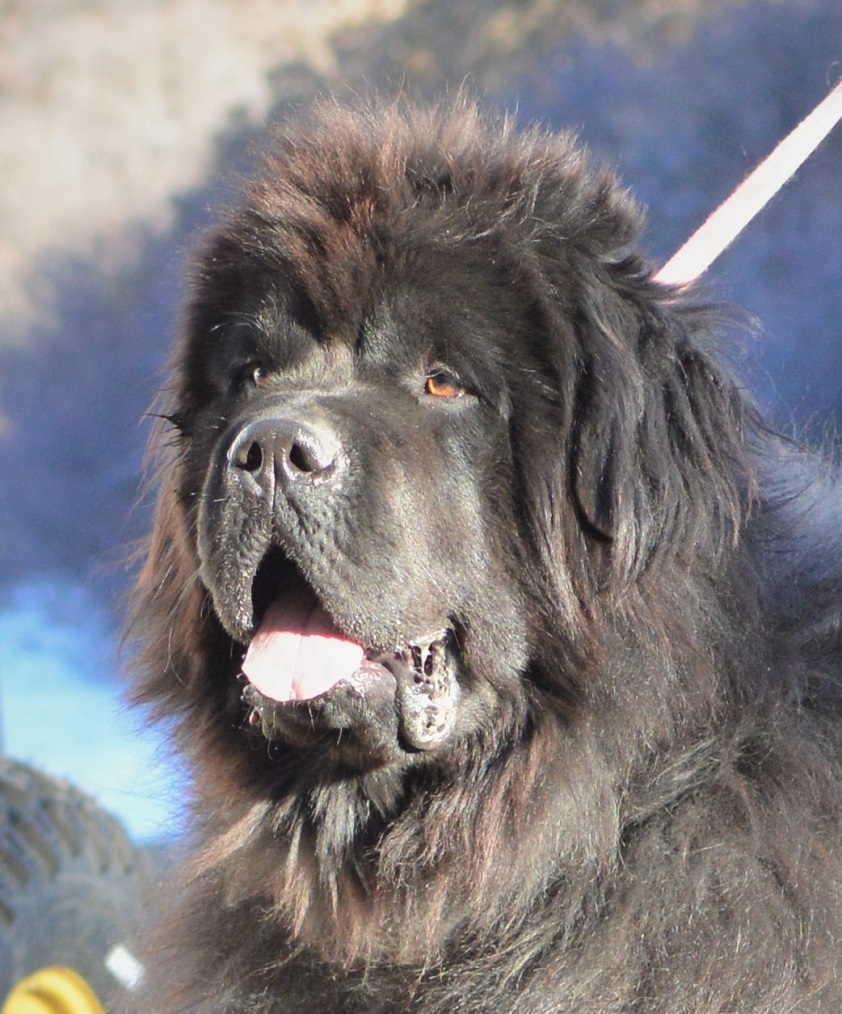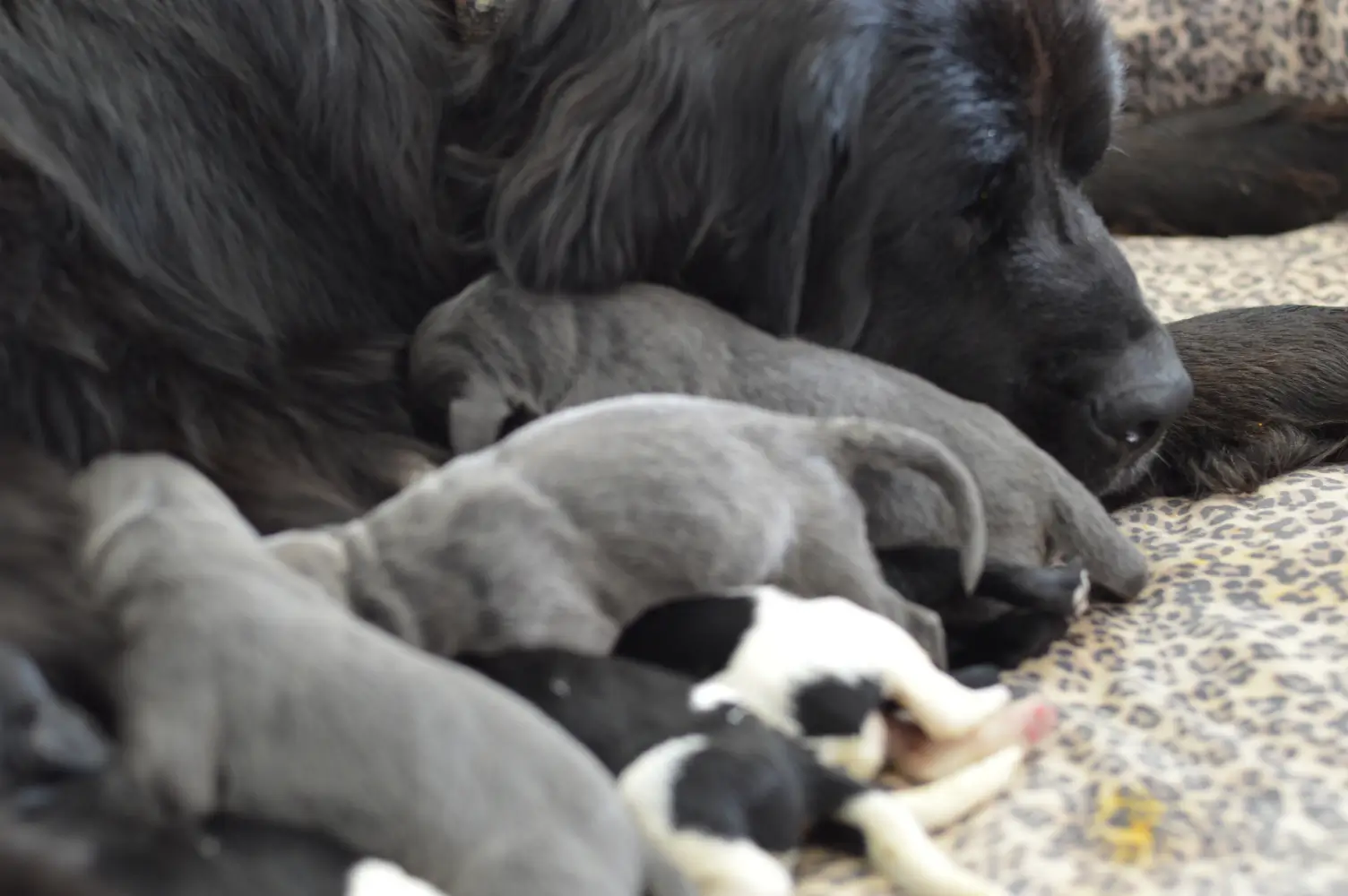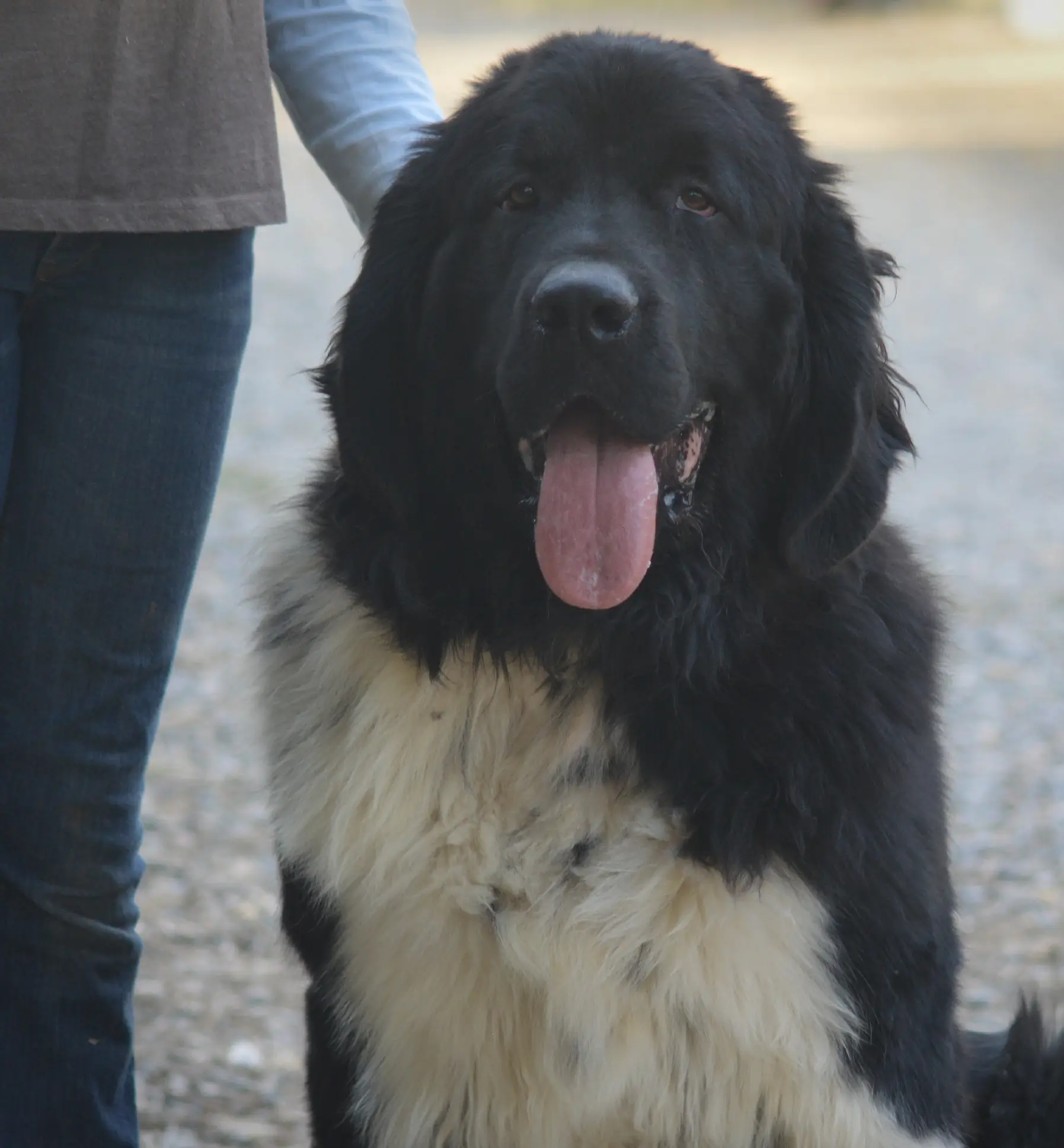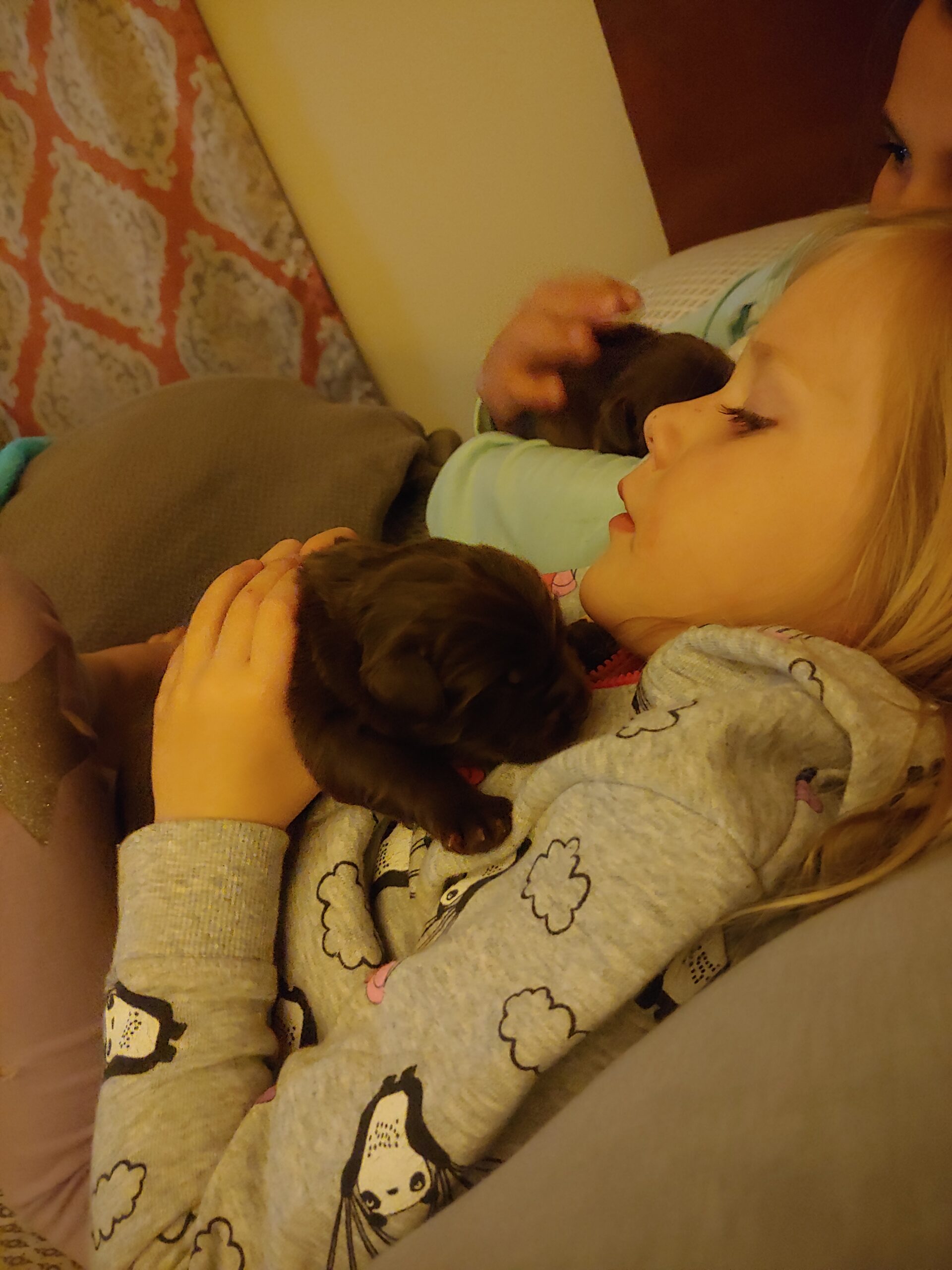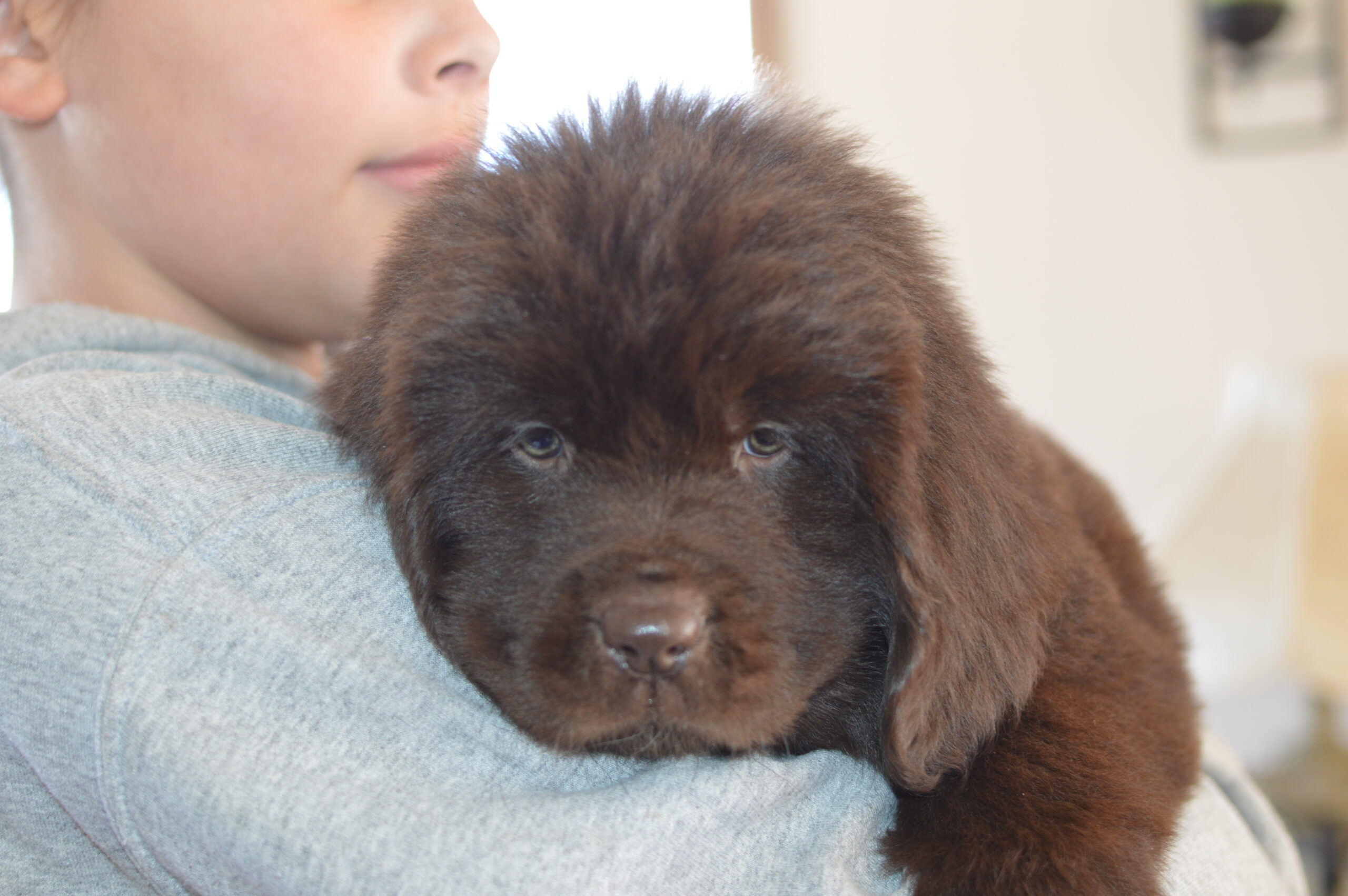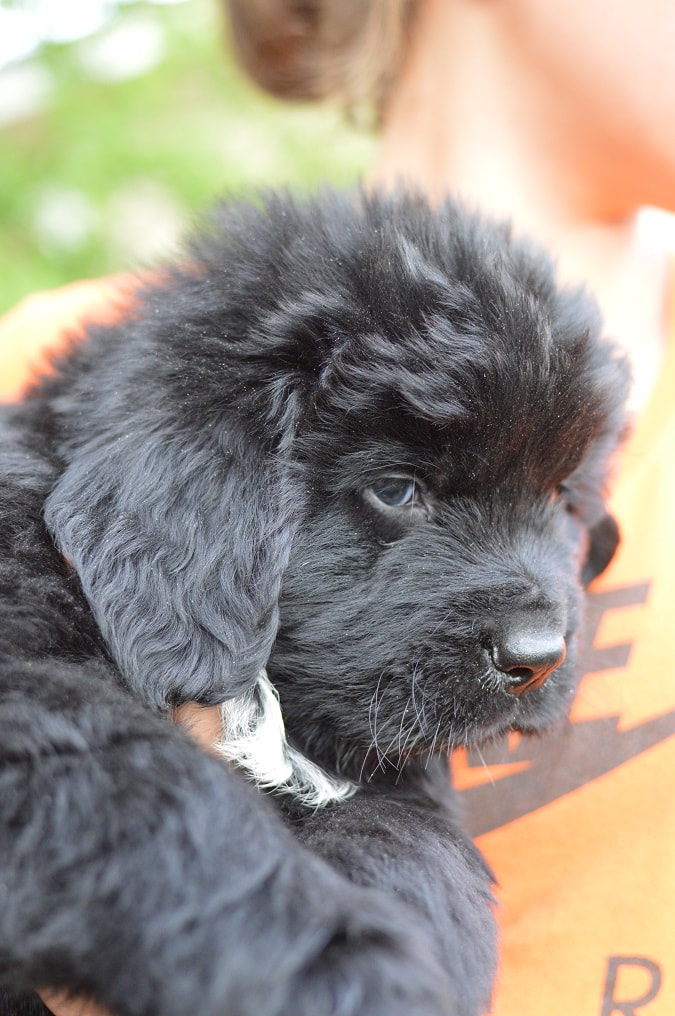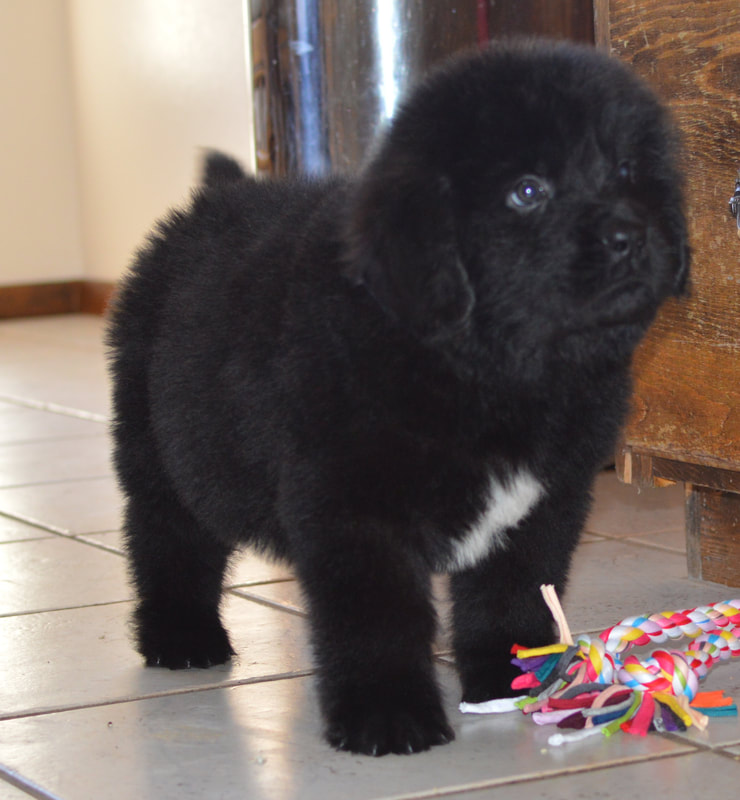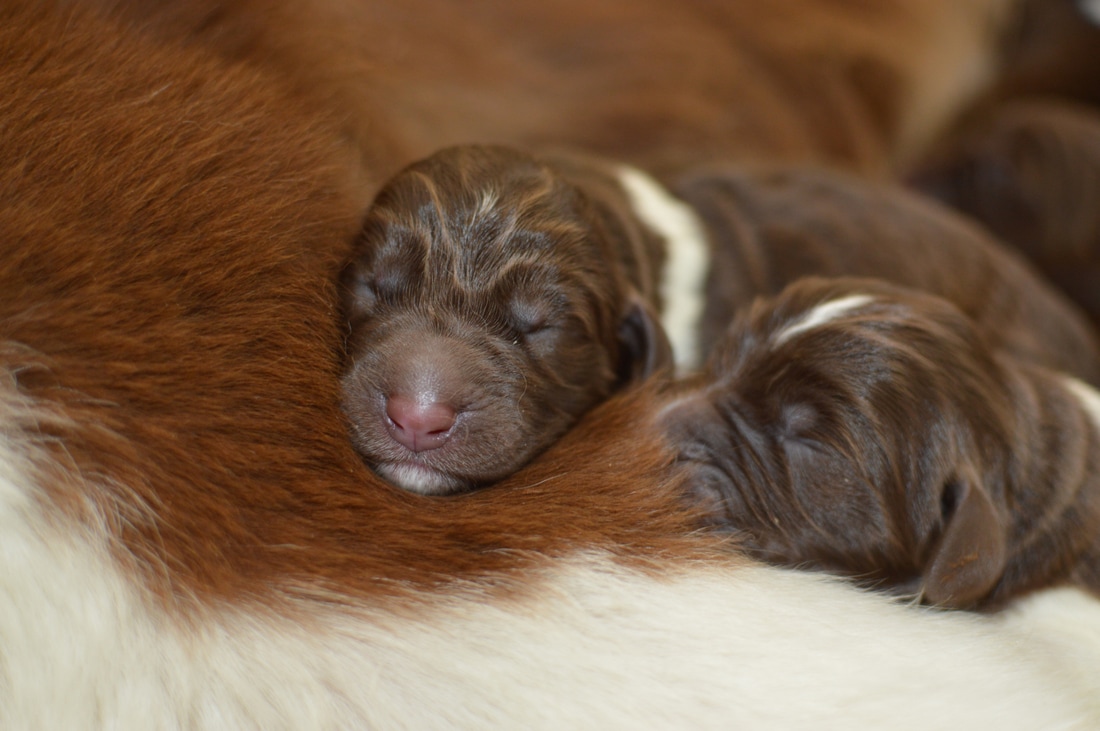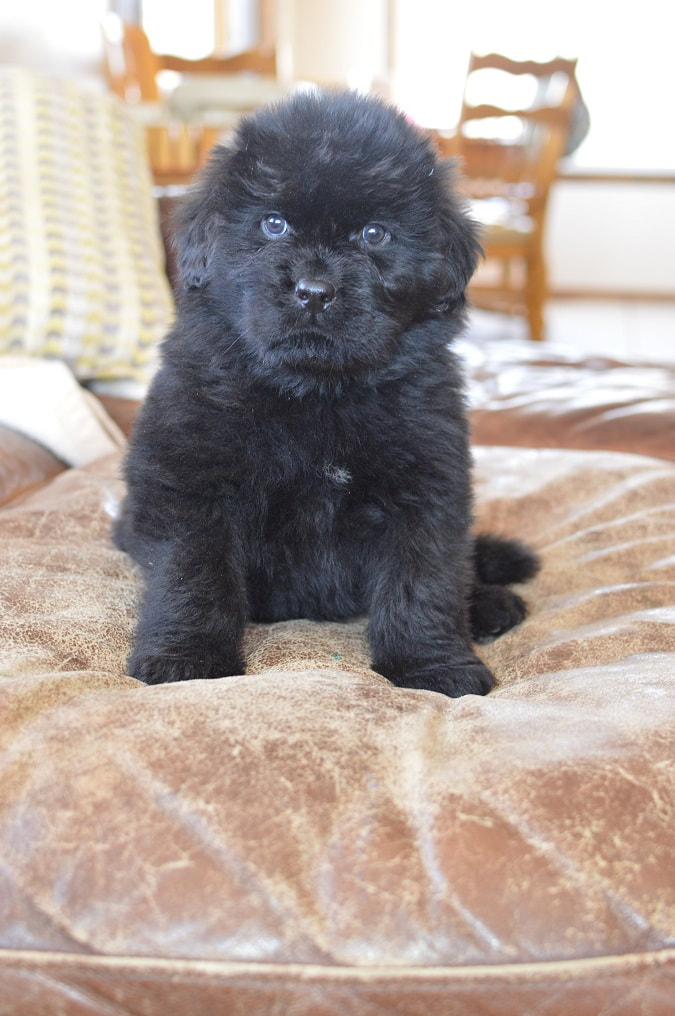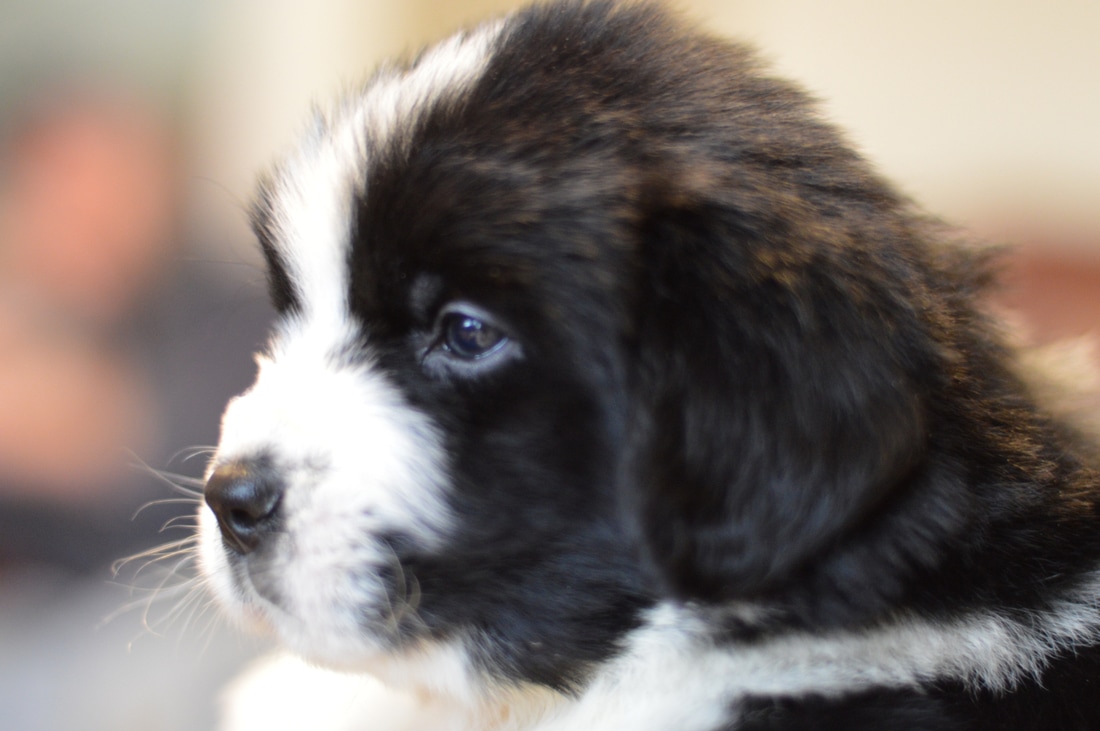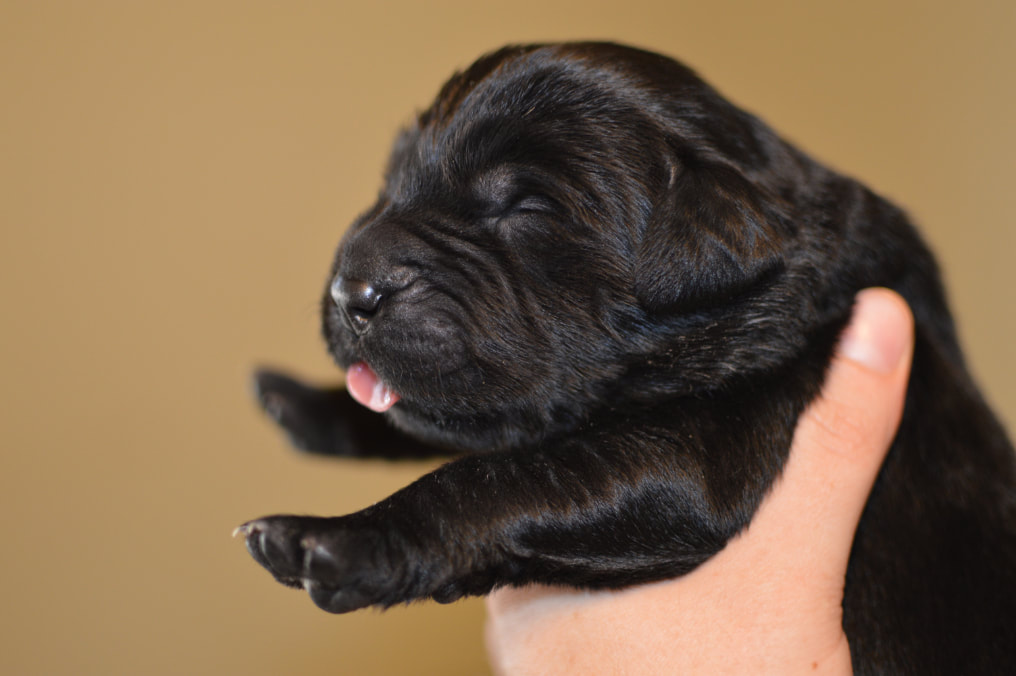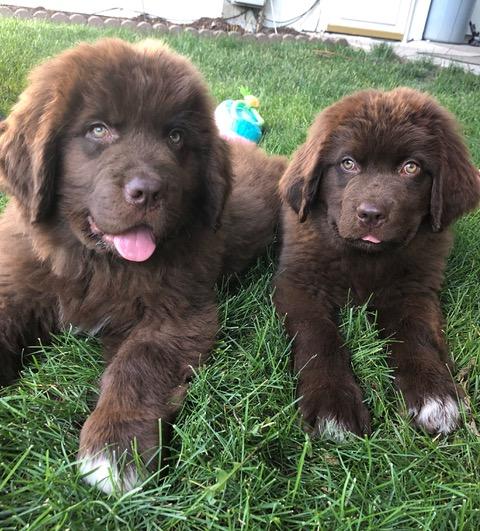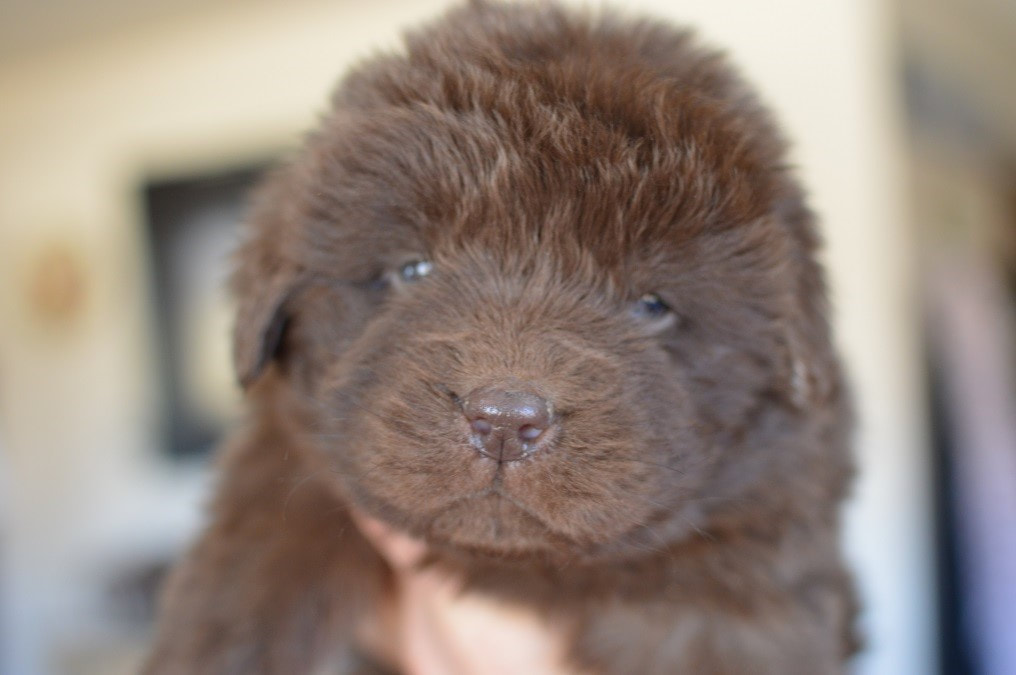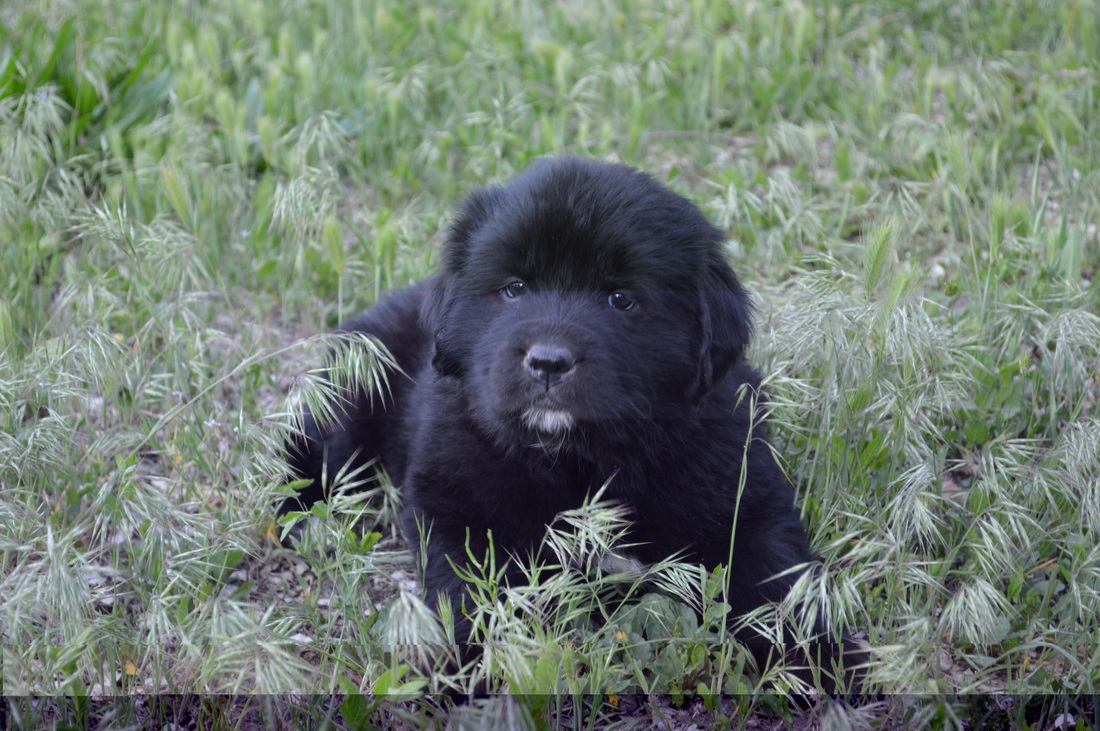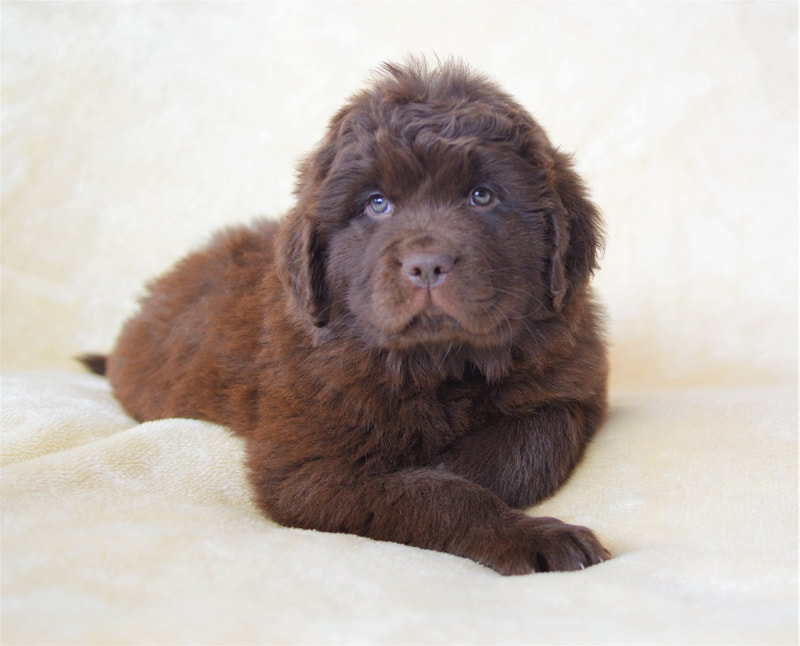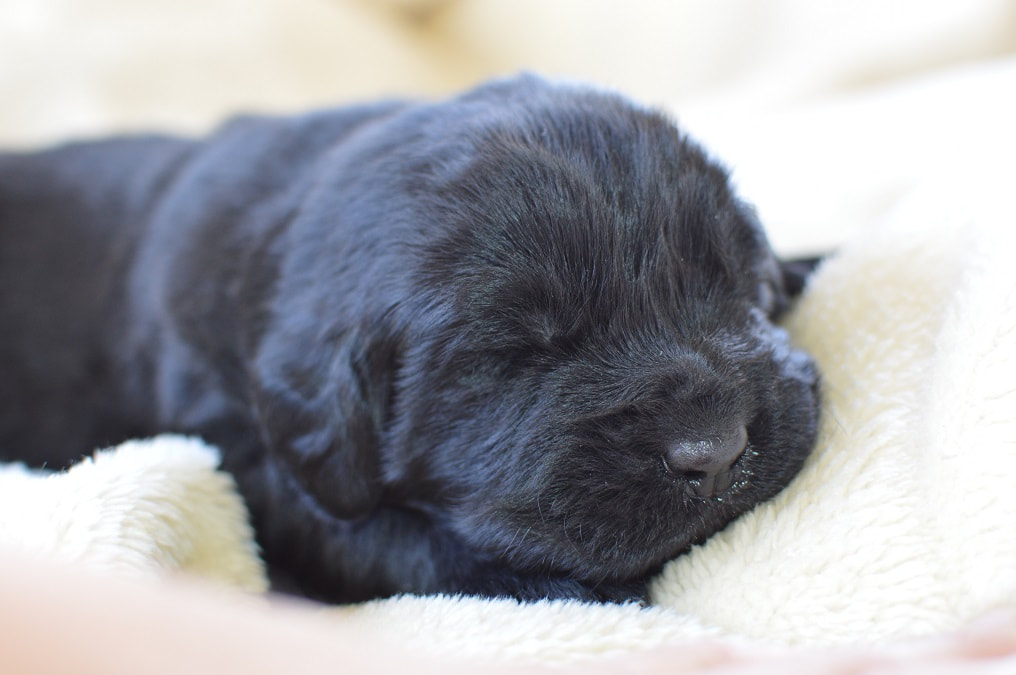
Browse our most frequently asked questions and see if one of your questions has already been answered. Here are some common questions we get asked:
A: The best way to purchase a Newfoundland puppy is to find a reputable breeder who specializes in the Newfoundland breed. Many families who acquire a Newfie through Moore Newfies come back to us when they are ready for additional puppies, they also refer us to anyone interested in the breed. A great indication of a good breeder will be the reputation they have earned through past clients, if you come across a Newfoundland dog – simply ask where it came from and what the experience was like… and would they recommend the breeder to other people? A Google search for ‘Newfoundland Puppies For Sale’ will provide many breeders to begin sifting through.
A: The cost of a Newfoundland puppy can vary depending on the breeder and location. On average, you can expect to pay between $2,000 to $3,500 for a Newfoundland puppy. The expenses involved in operating a responsible and reputable breeding program will be reflected in the cost of adopting a newfoundland puppy. For example; We have imported Newfoundland dogs from the best bloodlines in the world, some of which have cost over $8,000 each. There are a multitude of other associated costs that contribute to Newfoundland puppy prices; super premium feed, supplements, materials required to maintain a clean facility, ultrasounds, microscopes, industrial grooming supplies, etc… A highly knowledgeable and responsible breeder will have substantially higher operation expenses.
A: A reputable breeder should be knowledgeable about the breed, health testing, and the genetic history of their dogs. They should be willing to answer your questions and provide references that support their responses. They should be transparent about their breeding practices and allow you to visit their facilities, but not at the risk of their program as there are times when puppies are more vulnerable than others. We personally do not allow visitors when there are puppies under 3 weeks, cross contamination risk is something that we try to minimize as much as possible – the health of our dogs is our priority. We also require visitors to refrain from bringing any other animals with them and ask that they follow our sanitization procedures prior to a visit or Newfie puppy pick-up. A reputable Newfoundland breeder should practice what they preach; feeding good food, not allowing grooming to become unmanageable, moderate exercise provided, the ability for the dog to move around freely in a clean area, Newfoundland dogs should never be tethered other than for the purpose of handling or exercising. If you have the ability to observe the adult breeding dogs; do they appear to be at a good weight for their build, is their coat shiny, are they excessively matted, does their temperament display a knowing that they are loved or do they shy away, does the facility seem like it is cleaned frequently…. These are all questions to consider when selecting a Newfoundland breeder.
A: Newfoundland puppies are prone to certain health issues such as hip dysplasia, heart disease, and eye problems. It’s important to purchase your puppy from a breeder who performs health testing on their dogs and provides a health guarantee. There is a wealth of information pertaining to this subject on our Newfoundland Breed Information page of this website. To our knowledge we are the only Newfoundland breeder in the country offering a three year health guarantee, we are extremely confident in the health of our bloodlines and the knowledge/experience we have in raising Newfoundland puppies.
A: Before bringing your Newfoundland puppy home, you should prepare your home by puppy-proofing the area, purchasing necessary supplies such as a crate, food (make sure to consider breeder recommendations), bowls, and setting up a schedule for feeding, potty breaks, and training/grooming. You never want to permit a Newfoundland puppy to do anything that you would not want them doing as an adult, they grow very fast and it is best to avoid any confusion in changing up the allowable activities. Be aware that the Newfoundland breed has a heavy coat and will blow this coat twice a year (once in the spring and once in the fall), moderately shedding throughout the year. They will likely begin drooling as they mature (any breeder guaranteeing dry-mouth is using the term as a marketing scheme, all Newfoundland dogs will drool to some degree), the drool is worst in the heat, while drinking/eating, or during exercise.
A: Newfoundland puppies are intelligent and trainable but can be stubborn at times, it is very important to train them while they are young. Positive reinforcement training methods work best with this breed as they have a very strong desire to please. Consistency, patience, and socialization are key to successful training. Newfoundland puppies are like children in the sense that each one is different, if the puppy is not responsive to a current method then you may need to do some research on other methods or speak with a professional trainer and learn the language your dog needs you to speak in regards to what type of training methods the puppy will be responsive to. Seeking out a trainer that is familiar with the Newfoundland breed could be a great place to start.
A: Newfoundland puppies need moderate exercise, but it’s important to avoid over-exercising them especially while they are still growing. A daily walk and some playtime in a fenced yard are usually sufficient. Never allow your newfoundland puppy to run up/down stairs or on slick surfaces, you want to minimize the risk for injury as much as you can especially during the rapid growth stage. Newfies are very strong and are a working breed, they need to use their muscles, bones, ligaments, and tendons but not over use them. Uneven surfaces that allow gripping where they can activate the pushing and pulling motions while also having full traction on the ground are very beneficial, if you have access and the ability to accommodate – swimming is another great option for exercise. If swimming is something that you will be wanting your Newf to partake in, you will need to introduce them early on and consistently, otherwise they will likely just want to play around in the shallow area.
A: Newfoundland puppies have a thick, double coat that requires regular grooming. Brushing their coat a couple times a week and giving them a bath every few months is recommended. If your Newfoundland puppy is going to be frequently getting wet, you will need to take extra precautions to avoid bacterial infections on the skin. Newfoundland dogs have a thick double coat, if they are wet very often they may not dry out thoroughly all the time and this creates an environment where bacteria and fungus will thrive.
A: The average lifespan of a Newfoundland dog is 8-10 years. However, with proper nutrition and all around care, regular veterinary checkups, never allowing them to become overweight, some Newfoundlands can live longer. I have clients who bought newfoundland puppies from me that have lived to be 13 years old and still doing well for a senior because they have followed my protocols and recommendations in keeping the dogs healthy.
Sarah Gray
(970) 560-0683
email: moorenewfies@yahoo.com
Palisade, Colorado
We have puppies throughout the country, including;
Alabama, Alaska, Arizona, Arkansas, California, Denver, Colorado, Connecticut, Delaware, Florida, Georgia, Hawaii, Idaho, Illinois, Indiana, Iowa, Kansas, Kentucky, Louisiana, Maine, Maryland, Massachusetts, Michigan, Minnesota, Mississippi, Missouri, Montana, Nebraska, Nevada, New Hampshire, New Jersey, New Mexico, New York, North Carolina, North Dakota, Ohio, Oklahoma, Oregon, Pennsylvania, Rhode Island, South Carolina, South Dakota, Tennessee, Texas, Utah, Vermont, Virginia, Washington, West Virginia, Wisconsin, Wyoming
Plus some of our Mamas and Papas are imported internationally!





